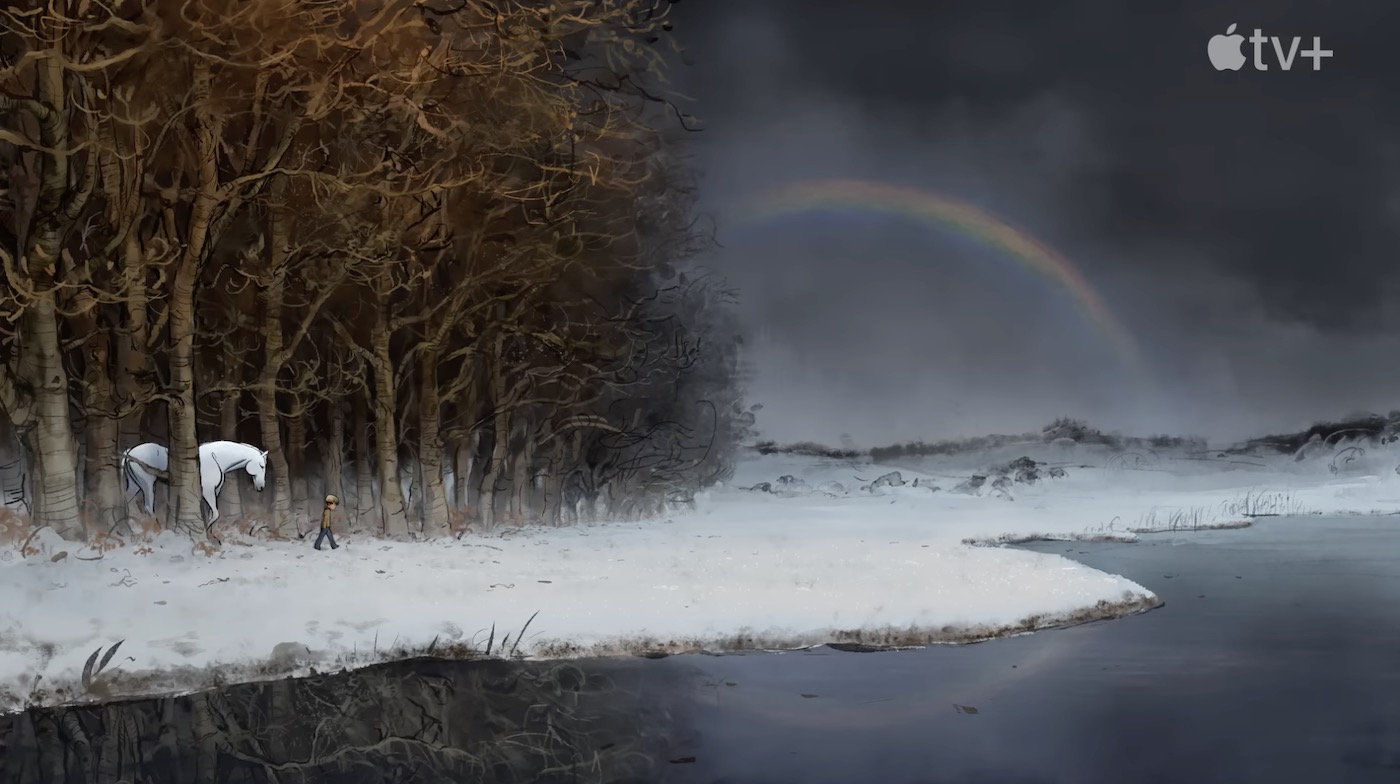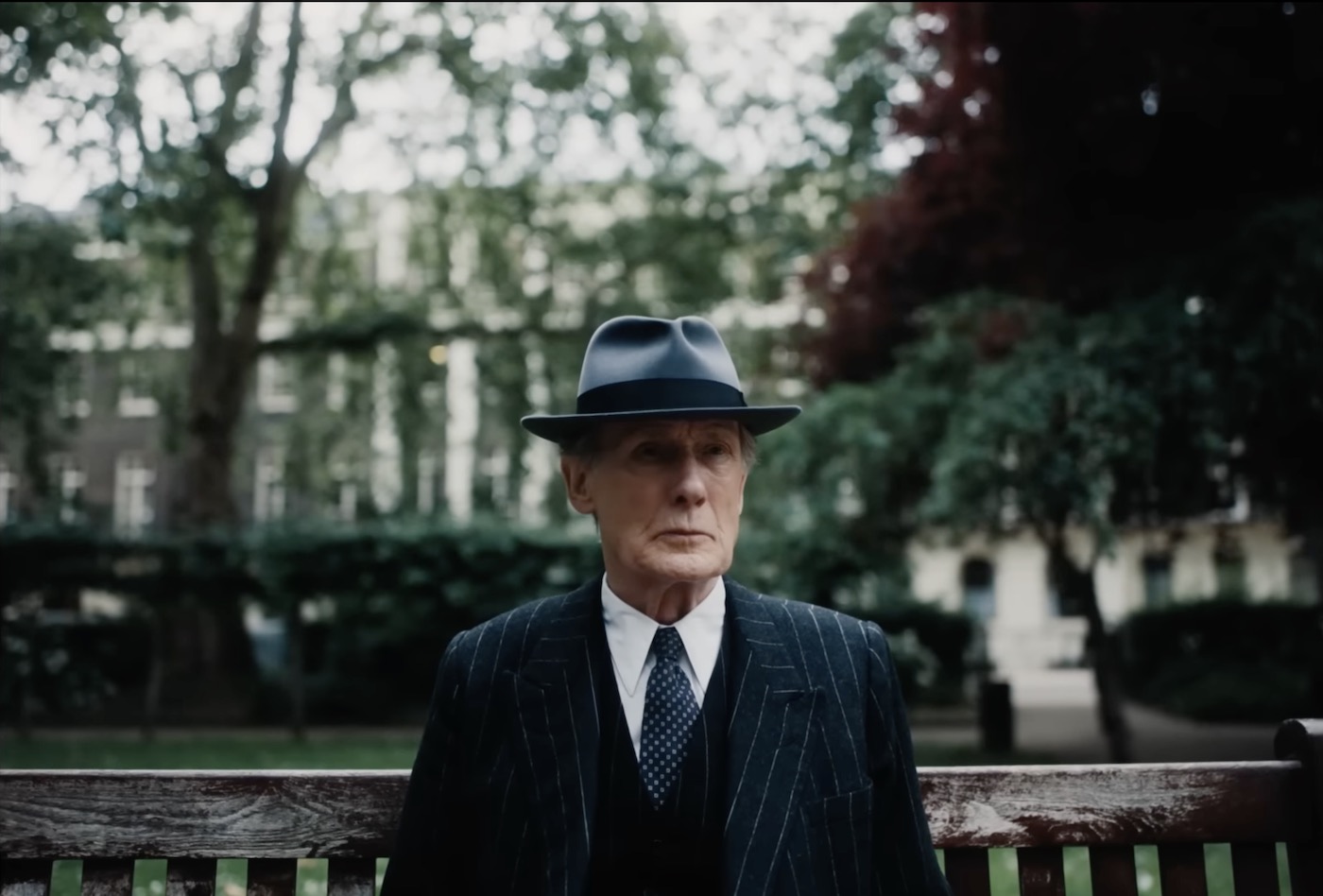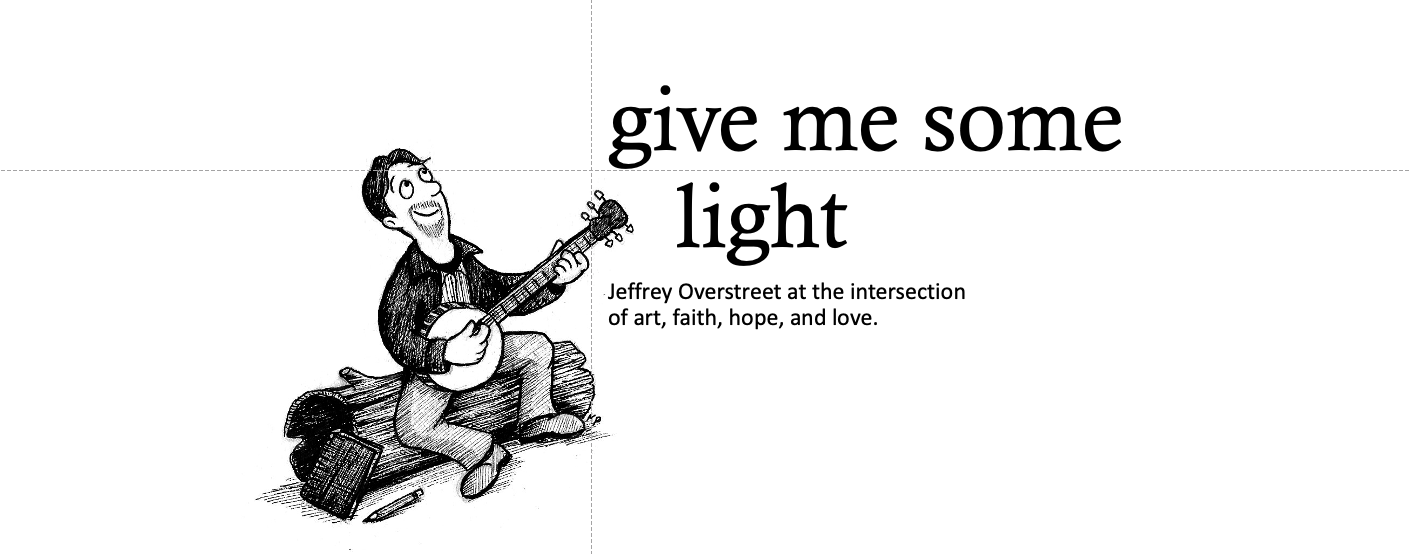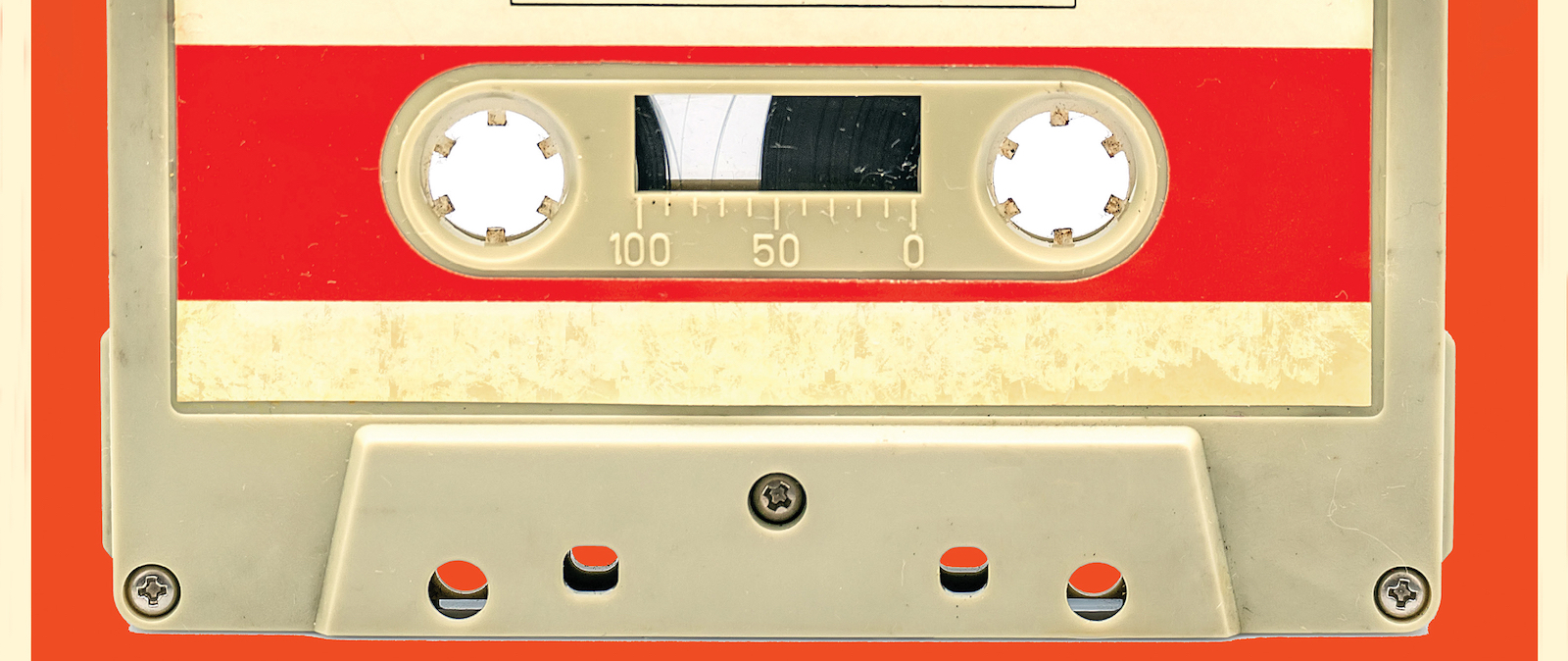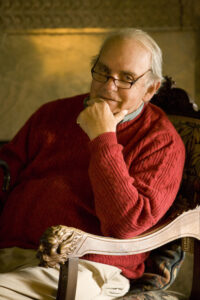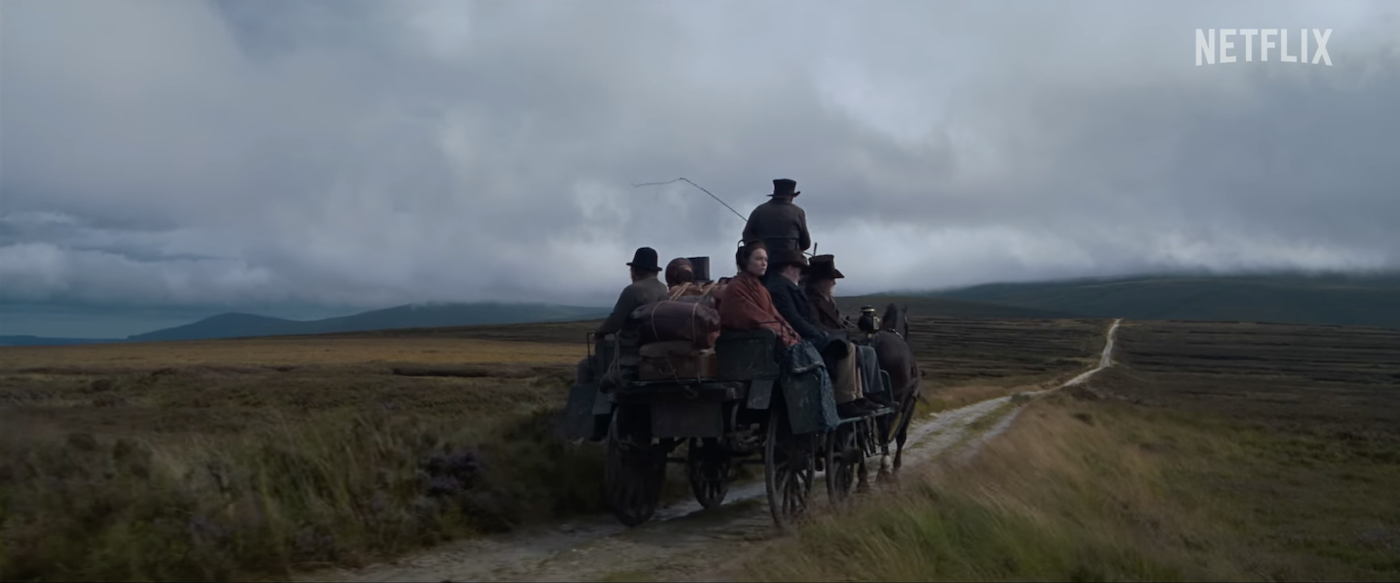Overstreet's Favorite Films of 2022 — Part One: Honorable Mentions
The Super Bowl is over.
Valentine's Day has passed.
The Oscars are coming!
And I've already seen some of 2023's new releases.
I guess it's time for me to make up my mind and share my list of favorite films from 2022.
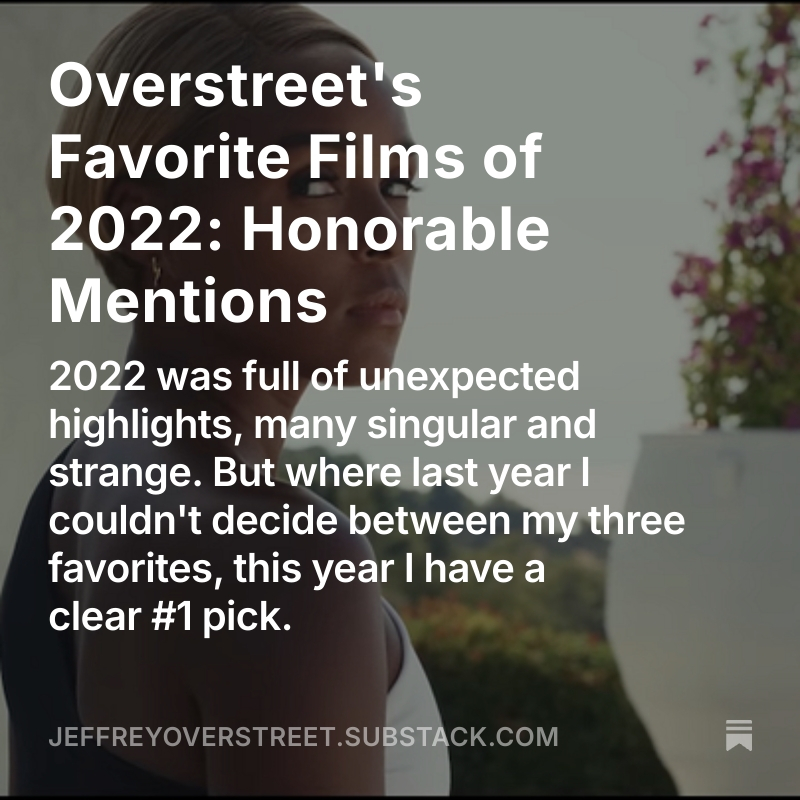
This post was previously published at Give Me Some Light.
Subscribe for free today!
Sign up for a paid subscription at you'll have access to even more!
As my longtime readers know, I don't like to rush things. I'm unwilling to join the circus of film reviewers who rush to post their favorites list in November, when there are still several weeks of movies that haven't yet been revealed. And even if I could see them all by November, I wouldn't have the time necessary for reflection, for reading others' perspectives, for (in some cases) second viewings. I like to give art time. Because there's so much going on in a good movie that isn't immediately evident. Thoughtful interpretations and assessments take a while to compose.
So, even though my opinions will continue to evolve, I'm ready to share the first of three posts highlighting the films released in 2022 that I found to be worth seeing and recommending.
2022 was full of unexpected highlights, many singular and strange. But where last year I couldn't decide between my three favorites, this year I have a clear #1 pick, great confidence about my Top Five, and after that it starts to get blurry.
Part One of this series — the "Honorable Mentions" — will be listed alphabetically instead of ranked. It's a long list of films I recommend highly, even if I didn't admire them enough to rank them at the very top. If you follow the links for each, you'll my first impressions, interpretations, and reflections in more detail.
And hey — why not post some information about your own favorites of 2022 in the Comments? What am I leaving out? What have I missed that I need to see?
A Hero
https://youtu.be/zAJ6_lmr_HQ
- Director and writer: Asghar Farhadi
Farhadi's cinema is a moral X-ray machine so fine-tuned that his narratives leave me at a loss for words unless those words come from the Scriptures. And this film — is it worth saying :one of his finest" when so many are so great? — is no exception. It shows us the folly in exalting anyone's righteousness. When we make a hero of human beings, they will likely then suffer the kind of scrutiny that will expose their humbling faults — and that, in this world of reactionaries and bullies, might end up doing them more harm than good. Worse, the simplest act of goodness can be so easily exploited by others.
Love your neighbor quietly. And pray your love doesn't attract attention. It's blood in the water for the devil’s sharks, including those within within your own heart.
Saleh Karimaei, the boy who plays Siavash, would have made Abbas Kiarostami weep. Farhadi knows the best way to break our hearts over the failures of adults is to place a child among them and let him watch, with dawning horror, how corrupt his elders really are.
Belle
https://youtu.be/izIycj3j4Ow
- Writer and director: Mamoru Hosoda
With animation so dazzling that it's easy to suffer through the movie's patience-testing duration, Belle gives us a clever re-contextualization of Disney's Beauty and the Beast. In fact, the homage is so blatant — especially in the design of the Beast's castle and the choreography of his turning-point encounters with Belle — that I'm surprised I haven't read about any tension between Disney and Studio Chizu. There is so much, light, color, and extravagance, I was often awestruck. And I recommend you see it on the biggest, brightest screen you can. But, as with so much anime, everything is so big, so overblown, so obvious, it's hard not to come away feeling that stronger writers could have made this a masterpiece.
The Black Phone
https://youtu.be/3eGP6im8AZA
- Director: Scott Derrickson
- Writers: Scott Derrickson and C. Robert Cargill
It's so much more engaging, and it's about so much more, than most movies about serial killers, I was pleasantly surprised. … Contrary to what I might have expected from reading the early reviews, I like the young actors and how their performances gave this a surprisingly comic undertone throughout. Contrary to the approach of so many horror films, including Derrickson's own Sinister, the enemy is not made to seem invincible or awe-inspiring, but is actually something of a buffoon; The Grabber reminds me more of the Coen Brothers' approach to killers than other Blumhouse icons, and that's a good thing.
James Ransone FTW.
As a "period piece," this looks and feels just right.
Both Sides of the Blade
https://youtu.be/OBTJTtOiuzg
- Director: Claire Denis
- Writers: Christine Angot and Claire Denis, based on Agnot’s novel Un tournant de la vie
We want freedom from control, but we can’t stand the idea of losing our influence over others. Is the ache of heartbreak from the loss of the Other, or from the loss of the desire the Other has for us? This isn’t a movie about love, really. It’s a movie about phones and credit cards, and the charade of virtue we put on to seem noble until somebody takes our power away. We don’t want to be told we can’t. That’s the hurt that shows us who we really are: utterly dependent. And, if we’re not careful, spoiled rotten.
[For more substantial reflections: Darren Hughes' notes from Berlinale.]
Bullet Train
https://youtu.be/0IOsk2Vlc4o
- Director: David Leitch
- Writer: Zak Olkewicz
I've been missing well-made action comedies. Since Edgar Wright moved on from the Cornetto trilogy, I've been wondering who would step up and seize the opportunity. Bullet Train isn't as strong as any of those three films. Wright's films earn 'A' grades on every count, while Leitch's film here is 'B'-grade on most counts. Wright knows how to sustain a very tricky balance: He can weave meaningful character development and thoughtful thematic exploration into his action, while also celebrating and innovating on genre cliches, and somehow avoiding irresponsibly gratuitous violence. Leitch isn't nearly as ambitious and doesn't seem to be as gifted — Bullet Train has some playful comments about luck and fate along the way, but there's not much to discuss afterward. What it does have is a feast of dazzling, tongue-in-cheek action sequences, and some very clever braiding of plots and subplots. As an exhibition of slick craftsmanship, it's consistently impressive and engaging.
Corsage
https://youtu.be/P7LpMtLRe2E
- Writer and director: Marie Kreutzer
There are fleeting images of bodies of water here that I will remember more than anything in The Way of Water. And there is a quiet image of the Empress alone at a table holding a teacup that I find more striking than any image in the box office top 10 this year. And forget the dance in Wednesday — give us the closing-credits Krieps.
Cyrano
https://youtu.be/5e8apSFDXsQ
- Director: Joe Wright
- Writer: Erica Schmidt; based on her 2018 stage musical of the same name, which is based on Edmond Rostand’s 1897 play Cyrano de Bergerac
- Music: Aaron and Bryce Dessner
Notes:
I’m always impressed by Peter Dinklage. I’m always moved by this story. And the decision to switch Cyrano’s affliction from a prominent nose to achondroplastic dwarfism works better than I might have guessed. But overall, the most interesting aspects of this were the Dessners’ forays into making a familiar story into a big-screen musical surprising enough to move us all over again.
Here’s Steven Greydanus’s detailed review, which is so good it makes me want to see it again, even as it makes me content to recommend it rather than attempt anything so substantial myself.
Elvis
https://youtu.be/Gp2BNHwbwvI
- Director: Baz Luhrmann
- Writers: Baz Luhrmann, Sam Bromell, Craig Pearce, Jeremy Doner
If you don't like Baz Luhrmann films, this won't change that. If you like The Great Gatsby and loved Moulin Rouge! as I do, you'll have a good time with this. . . . This is the story of two men: one, addicted to gambling; another, addicted to attention. It’s a tragedy for both, given the gifts evident in both of them. And, as dealmaking and showmanship are two of America’s most notorious strengths, this shows you where it’s all headed. . . . How long until Butler plays John Travolta in a biopic that gives a lot of attention to Saturday Night Fever?
Emergency
https://youtu.be/FVi9hlvQOrg
- Director: Carey Williams
- Writer: KD Dávila
Here’s my full review at Looking Closer.
Emily the Criminal
https://youtu.be/Xzf1YCEkLDI
- Writer and director: John Patton Ford
Tense and efficient and surprisingly uncomplicated, Emily the Criminal makes for a suspenseful 90 minutes that feel more like 60 or 70. Shot with a lot of effective, tight, handheld close-ups, it feels immediate and convincing.
…
Aubrey Plaza and Theo Rossi are both very good here, and perhaps the best compliment I can give them is that they develop some impressive, engaging chemistry in very little time. I've been a big fan of Plaza since Parks & Rec, but I've been disappointed in the variety of movies she's been in so far. This feels like a giant step in the right direction.
The Eternal Daughter
https://youtu.be/5hJR8hEsLZU
- Writer and director: Joanna Hogg
Some surprisingly Lynch-ian vibes here in what often feels like a low-key take on The Shining. A haunting whisper of a film, as ethereal as a wisp of fog blurring the moon. As one compelled — uselessly, really — with an insatiable desire to impart happiness to my parents, and often feeling that my efforts have backfired, I really feel this movie.Tilda Swinton: 2022 MVP. This is my second-favorite Swinton-Lost-in-a-Soundscape film of the year. Can this surprisingly enchanting new genre become a biannual event?
Glass Onion: A Knives Out Mystery
https://youtu.be/-xR_lBtEvSc
- Writer and director: Rian Johnson
That's entertainment. And it's also therapy for those exasperated Americans who, over the last several years of insurrection, authoritarian narcissists, and billionaires-gone-bananas, have felt like they've been taking crazy pills.
I need to put my past misgivings about The Bloom Brothers and Looper away and admit that, at this point in his career, Rian Johnson is an undeniable force for good in the world.
And not just because he's given Kate Hudson her best role in 22 years. Not just because Edward Norton is fun again. Not just because we can put Antebellum behind us and be excited about the camera's love affair with Janelle Monáe again. Not just because this has several of the cleverest surprise cameos any director has ever pulled off (I mean, the flex this guy is showing off right now).
But because, as much of a three-ring circus of hijinks and fun as this is, it serves up so many meaningfully cathartic laughs about things that deserve to be laughed at. Others have already marveled at the seeming prescience of this film's script given what we're seeing in the headlines this week. But just... wow. I needed this movie so much.
God’s Creatures
https://youtu.be/fyOk1QVDlsI
- Director: Saela Davis and Anna Rose Holmer
- Writer: Shane Crowley
Holmer and Davis … elevate this material, drawing out yet another extraordinary performance from the great Emily Watson (who doesn't get nearly enough leading-role work these days), and finding in Paul Mescal's performance some of the same chemistry of boyish charm and deep shame that makes him so magnetic in Aftersun.
…
[A]s an intense immersion in a persuasively constructed Irish coastal community, and as one of this year's several brilliant portraits of "women talking" (or, in this case, not talking) about men's violence, this is a film that will stick with me. And I'm delighted to find that these filmmakers eschew the prevalent cynicism about the role of faith in a community, showing it to have a powerful influence on those who refuse to cast their conscience aside for the sake of self-preservation.
Hit the Road
https://youtu.be/6PTz6Dzsv6A
- Writer and director: Panah Panahi
Here’s my review at Looking Closer.
The House
https://youtu.be/wqbZlAEUb5w
- Directors: Emma de Swaef, Marc James Roels, Niki Lindroth von Bahr, Paloma Baeza
- Writer: Enda Walsh
For a movie about the soul-threatening perils of investing your love in a temporal thing, this film is a testimony to the near-miracles that become possible when we invest our love in temporal things. What awe-inspiring animation this is!
And yet, it's a film that most will find difficult to love, as we try to make sense of why the cast of characters are first manifested as human, then as rats (and other vermin), and then as cats. The deliberate unpleasantness of the tone is as abrasive as some of its characters' fabric.But I'm not one to write off a movie for making me uncomfortable. The unease of great horror is deliberately and purposefully cultivated, and can be a path to wisdom. I'm convinced that the storytellers are doing meaningful work here, but this is a tough trilogy to interpret with confidence.
Kimi
https://youtu.be/_Gr2zXuEBL0
- Director: Steven Soderbergh
- Writer: David Koepp
Notes:
A high-energy COVID-19-lockdown take on Rear Window with a strong lead performance by Zoe Kravitz and a surprisingly non-cynical take on in-home technology and artificial intelligence. And I had a lot of fun seeing my city look so sleek and shiny as our hero dashes through it and dodges her sinister stalkers.
Murina
https://youtu.be/fC2sUO6xhOA
- Writer and director: Antoneta Alamat Kusijanović
I've finally found a movie adaptation of The Little Mermaid that I love.
Nothing Compares
https://youtu.be/-VLy1A4En4U
- Director: Kathryn Ferguson
- Writers: Eleanor Emptage, Kathryn Ferguson, Michael Mallie
Here’s my full review at Looking Closer.
The Northman
https://youtu.be/oMSdFM12hOw
- Director: Robert Eggers
- Writer: Sjón and Robert Eggers
Here’s my review at Looking Closer.
Official Competition
https://youtu.be/3b0ZYBmST-U
-
- Directors: Mariano Cohn, Gastón Duprat
- Writers: Mariano Cohn, Andrés Duprat, Gastón Duprat
Imagine a more sophisticated version of Dirty Rotten Scoundrels, set this time in the world of arthouse filmmaking, with the two competitive rival Scoundrels being egomaniacal leading men with very different methods of acting. But this time, the woman they're both drawn to is in charge from the get-go — she's the director who wants them to act opposite one another as feuding brothers in a major motion picture, and she proves to be just as aggressively contentious as the two of them.
...
I miss comedies that remember to use the whole screen. I miss comedies that expect their audiences to be intelligent. I miss comedies that use silences and body language cleverly, instead of just delivering written jokes. I miss comedies in which jokes have two, three, even four stages of detonation.And I miss sophisticated comedy performances like these. All three leads are fantastic, and José Luis Gómez is particularly funny in a dry, subtle supporting role as Humberto Suárez, a multi-millionaire monster who, knowing he's hated for being heartless, wants to reinvent himself as a gift to humanity by producing a meaningful film based on a Nobel-prize-winning novel.But this is Penélope Cruz's show, above all, and she is sensational. I want to see her doing more of these ambitious comedies. Few actresses would be able to give a complicated performance in a wig as spectacular as this one, but she is glorious.
Prey
https://youtu.be/wZ7LytagKlc
- Director: Dan Trachtenberg
- Writer: Patrick Aison
In this Predator prequel, which might as well be called Episode One: The Phantom Menace, the New Mexican Aubrey Plaza — Fort Peck Sioux tribe member Amber Midthunder — catapults to the front lines of action stars with a supremely confident and engaging performance and achieves what might be the most difficult thing to do in a Predator movie: She steals the movie from the alien and makes me want to see more movies about Naru instead of any soulless, roaring, extra-terrestrial bigfoot.
I approve. Since franchise installments apparently must be made endlessly as long as there is money to be made from the fans who are addicted to the familiar, why not spice them up with something thought-provoking? Why not ambush audiences with some aesthetic beauty and some provocative undermining of genre tropes? Why not do what you can to wake a few viewers up to how much better movies can be, and make a few a little more willing to loosen their ignorant assumptions about gender? Why not try new things?
P.S.
I mean, I knew Malick's The New World would be influential. I never dreamed it would inspire this.
She Said
https://youtu.be/i5pxUQecM3Y
- Director: Maria Schrader
- Writer: Rebecca Lenkiewicz
This is a much stronger film than the trailer or the early buzz led me to believe. Sure, it's somewhat formulaic. And yes, it's hard to make a film about journalists working hard to reveal the truth without having them say obvious things about truth-telling. We've seen so many of them. Spotlight may deserve to be celebrated for greater artistry (as does Dark Water), but I think it won its Oscars in part because of good timing and a long highlight reel full of flashy Oscar Moments (particularly one featuring Mark Ruffalo that had me cringing in the theater). She Said impresses me just as much, if not more — it's just as urgent and relevant, just as suspenseful (even if you know the story), and it never feels like it's straining to win awards. And while it's about one man who is now in prison, it's also about many, many other men who aren't — not yet, anyway. I wish I could convince everyone I know to see it and share it.
. . .
Now, I admit that I may not be the most objective critic on this film.I know quite a few women who are journalists. And I was caught up in a recent drama in which a powerful man pulled all the strings he could to silence many "she saids" that represented women who were very close to me, women I count as trusted friends and model of integrity. How could I watch this and not be aggravated, upset, inspired, and (if you will) evangelical about it when it's over? I'm thinking about how this film might (if anybody sees it) inspire others to fight for similar surges of truth-telling to overthrow other abusers in power.
. . .
What's best — She Said isn't a courtroom drama. It doesn't revel in the truth-tellers' victories. It's a journalism drama — a movie about work. It may not represent what life is really like at The New York Times... I don't know. But it doesn't romanticize what journalists do. While it abbreviates a great deal to fit the story into a two hour span (I'm sure this is a case of "The book is so much better," because of course it is), it represents the long hours, the hard work, and the cost to every aspect of journalists' lives. And, specifically, the sacrifices that many women in journalism make remain front and center.
Stars at Noon
https://youtu.be/Yg3EQ1_zRow
- Director: Claire Denis
- Writers: Claire Denis, Léa Mysius, Andrew Litvack; based on the novel The Stars at Noon by Denis Johnson
As unconvincing as the political drama and intrigue of mid-'80s Nicaragua might be here, the film's focal characters touch something true: It’s remarkable how much we will rationalize in our desire to be known, to be needed, to feel purposeful. When the world rejects what we have to offer, we might be surprised how many compromises we can live with if it means we get a taste of being loved… and of loving. Or of something close to that.
. . .
Denis is so patient, so focused on craft, so uninterested in anything conventionally "entertaining," so preoccupied with quiet rhythms, so attentive to capture moments of persuasive human expression. She knows what so many great filmmakers know: that there is no subject more enthralling than the face of a human being deep in thought. She has been prolific in recent years: High Life, Let the Sunshine In, Both Sides of the Blade. All of those films are compelling explorations and playful variations in her style and themes. I admire them. But this... this feels like a return to her strengths. It took me mere moments to relax into that rare feeling of being on an adventure with a master director, one driven by questions and intent on discovery.
The Territory
https://youtu.be/wL9wvdbk7A4
- Director: Alex Pritz
Trigger warning for survivors of religious trauma: You will watch as men pray in the name of Jesus for blessings upon their work, and then they will turn and chainsaw their way into what's left of the heart of the world; they will unleash hell on a vulnerable community; they will (allegedly) commit murder; they will render "law and order" meaningless so the natives have no one to call for help; and they will speak without any shame at all about God has given this land to them.To watch these cruel and compassionless capitalists slash and burn their way through so much Amazon rainforest beauty is harrowing to behold. (And it's made all the more sickening in that I'm watching my own country on the brink of surrendering control to the same kind of merciless, arrogant fools.)
This Much I Know to Be True
https://youtu.be/o-f8HDIs6uM
- Director: Andrew Dominik
A perfect match of filmmaker and musicians.I saw Cave and Ellis live at the Paramount in Seattle a couple of months ago — a dream come true — and I'm still shook.
But where that was a rare case of a thunderous, rigorous, riveting communion between artists and audience — an experience that felt like a monsoon — this is an intimate journey into an private arena where artists are confronting cosmic questions, grieving unfathomable losses, and wrestling angels at risk of their souls. It's like watching spiritual warfare manifested as mixed martial arts matches.
In one sense, the film is about a unique and fruitful collaboration between two singular talents, but in another sense it's almost like Ellis is providing Cave with exactly the right sphere in which he can sculpt his anguish and his faith, giving shape to his unspeakable wounds and offering companionship and consolation to the lonely and desperate souls who write to him asking for guidance.
Three Minutes: A Lengthening
https://youtu.be/I8RprTU0hXY
- Director: Bianca Stigter
- Based on Three Minutes in Poland: Discovering a Lost World in a 1938 Family Film, by Glenn Kurtz
I love Bonham-Carter, but her presence here was, for me, an odd distraction in an otherwise profound exhibit of curiosity, detective work, academic inquiry, visual experimentation, and moral vision. Short enough to show during a typical class period, it will become a favorite for professors and teachers intent on making sure new generations of students know that the Holocaust was real and that bearing witness matters. It’s also an impressive display of finding a whole world in a grain of sand — or, in this case, three minutes of grainy footage.
Three Thousand Years of Longing
https://youtu.be/TWGvntl9itE
- Director: George Miller
- Writer: George Miller, Augusta Gore
George Miller's The BFG (for adults) with heavy doses of Terry Gilliam's The Adventures of Baron Munchausen and Tarsem's The Fall, and a tone that reminds me of Jean-Pierre Jeunet.I've now seen two new films in 2022 in which Tilda Swinton plays an eccentric who bonds with a strange man and, through an intimate touch, shares with him communal perception of other dimensions.
...
There's so much to enjoy all the way through. Swinton is Swinton-ing all over the place. ... Elba, by contrast, is surprisingly otherworldly and yet affectingly human at the same time — an unlikely but inspiring choice for this character. The fantastical stuff gives us some glorious images I'm so glad I saw on a big screen, but the scenes that are just about Swinton and Elba in white terry-cloth bathrobes sharing stories in a hotel room are every bit as savory and delightful. I could have listened to them talk all night.
Turning Red
https://youtu.be/XdKzUbAiswE
- Director: Domee Shi
- Writers: Julia Cho and Domee Shi
I appreciate how this one shows Pixar embracing animation less as an opportunity to dazzle us with how "lifelike" anything is and more as an opportunity to play. It's not as brave among Pixar movies as The Emperor's New Groove was among Disney animation features, but it has something of that film's recklessness. It also bears (AUGH!) witness to the influence of both Miyazaki and Aardman on the creatives — which is a good thing. And — perhaps best of all — it knows when to quit (something I unfortunately can't say about The Mitchells vs. the Machines, even though that's an unpopular opinion). It felt shorter than its hour-and-40-minute running time.This is a promising move in a new direction for a studio that has, for me, lost something of its magic over the last three features.
We’re All Going to the World’s Fair
https://youtu.be/d4s7v7djmBM
- Writer and director: Jane Schoenbrun
A re-imagining of one of horror's most fundamental texts — the confrontation between Clarice and the behind-bars Hannibal Lecter. But in this case, "Casey" – the film's Clarice – is trying to find the clues she needs in order to track herself down, in order to find out who she really is and how to cope in a world that has forced her into isolation. And "JLB," who we're conditioned to assume is a Hannibal Lecter just waiting to feast, is actually just a lonely guy — one whose strategies are dangerous and, for some, ultimately destructive.
But as "Casey" comes to JLB needing guidance and attention and affirmation, the other recognizes something in her, and the intimacy that forms between them transcends the templates of horror and becomes a rare and inspiring example of how Love Your Neighbor breaks down binaries. The game can go wrong depending on how it is used, but it can also become a language through which we cultivate real and redemptive relationship. And the game master is not a monster after all. I can feel the good in him.
Here's to a "horror" film that isn't about perpetuating horror by endorsing coercive violence against an Other, but rather seems to have a genuine interest in the cure for all horrors.
White Noise
https://youtu.be/SgwKZAMx_gM
- Writer and director: Noah Baumbach
- Based on the novel by Don DeLillo
Is White Noise Noah Baumbach's most hopeful film?
I'm not sure. But it's certainly his most imaginative and ambitious. He's pushing himself beyond his comfort zone into a very discomforting world of clashing modes and tones: chaotic Altman-esque family activity; Coen-Brothers-esque quirky supporting characters (the doctor, the mad TV-wielding prophet); Coen-Brothers-esque dark prophecies (a la A Serious Man); truly bonkers higher-education satire (Were college professors really this insufferably theatrical in the early '80s?); prophetic grim comedy (the traffic crashes and Millers-vs.-the-Machines family-car-in-slo-mo-flight); Marriage Story drama; and... sudden bursts of song and dance?!
The Woman King
https://youtu.be/3RDaPV_rJ1Y
- Director: Gina Prince-Bythewood
- Writer: Dana Stevens
Very surprising.
The lead performances are stronger than I anticipated: Davis as the general Nanisca, the strong hand of King of John Boyega's King Ghezo, is a more inspiring leader than Viggo Mortensen's Aragorn, Chris Evans's Captain America, or Mel Gibson's William Wallace. But I'm stunned to find myself wondering if her performance is the strongest one here: Both Thuso Mbedu (as the young trainee who is arguably the lead) and Lashana Lynch as Nanisca's fearsome and charismatic "power forward" Izogie are compelling whenever they're onscreen.
The violence is more visceral and chaotic than I anticipated, riveting in its energy and in the ways that dance in incorporated without disrupting the style/substance balance of the battle scenes.
And the weave of character arcs is more complex and affecting than the trailers hinted at.
The Wonder
https://youtu.be/htybz7XscIY
- Director: Sebastián Lelio
- Writer: Emma Donoghue, Sebastián Lelio, Alice Birch; based on the novel by Emma Donoghue
Here’s my full review at Looking Closer.
To be continued!
Check back for the "Runners-Up" post and the Top Ten over the next few days.
Or, subscribe to Give Me Some Light and access those posts right now!
Is this the "best first film" for very young children?
In the very first moment that the Horse appeared in the snowy woods, Anne pointed at the screen as if momentarily possessed by the spirit of Leonardo DiCaprio and shouted: "There it is, Disney! Finally! That is how you animate a horse! How hard can it be?"

You can watch it too if you have access to Apple TV+.
Based on the lavishly illustrated children’s book by Charles Mackesy, this Oscar-nominated animated short comes to us from co-directors Peter Baynton and the author Mackesy himself. And I'm not sure, but I'm inclined to say this is a strong candidate for Best First Film For Parents to Watch With Their Toddlers.
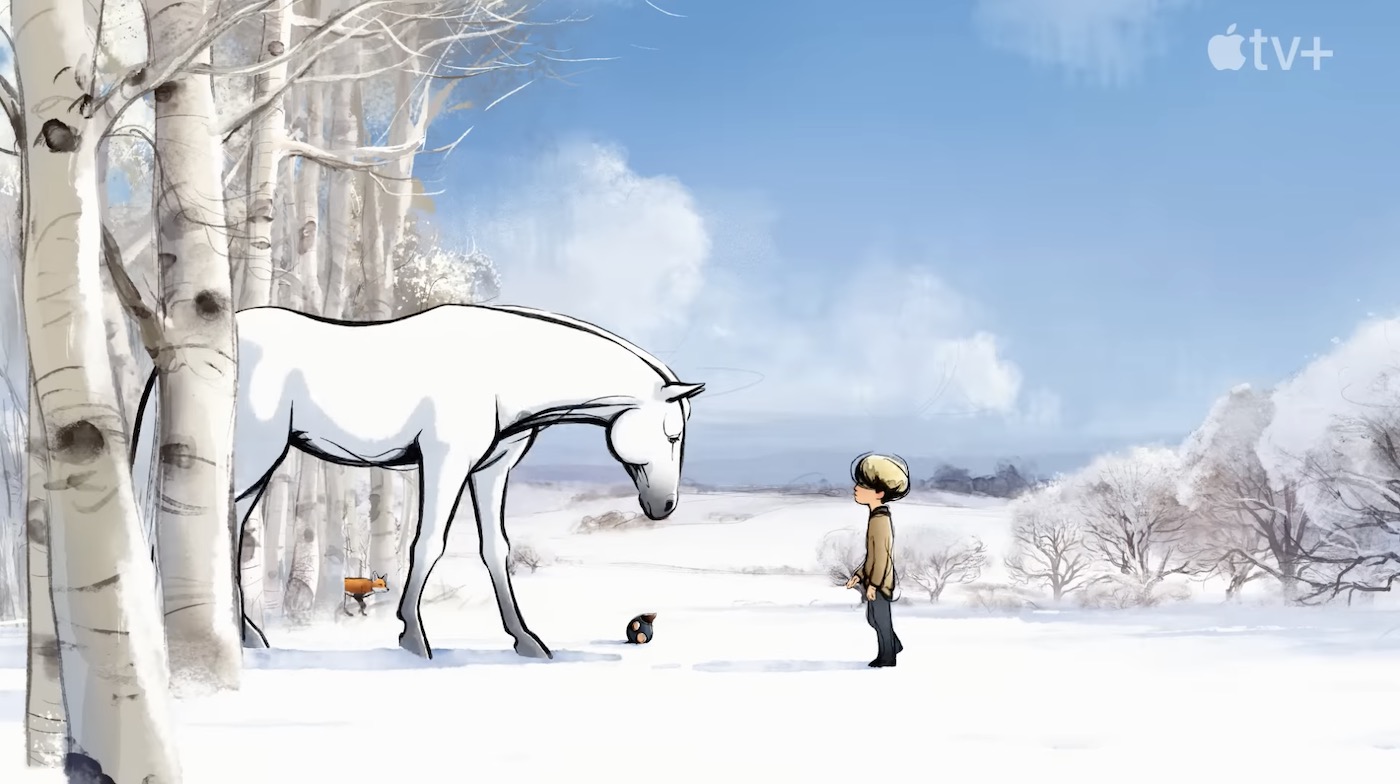
The characters are sparingly drawn, but endearing in ways that will probably remind everyone of Christopher Robin, Pooh, Piglet, and Eeyore. They’re even slighter than that, really — so simple that they’re in danger of dissolving into something like a mood or a sigh or a gust of wind. Think of The Little Prince or The Giving Tree, and you’re in the neighborhood. The thing that may spoil it right away for some viewers is that each character seems to come equipped with a kit full of platitudes that they cannot wait to offer. I’m not proud of it, but I cringed at more than a couple of lines as the Mole (voiced by Tom Hollander), the Fox (Idris Elba), and the Horse (Gabriel Byrne) kept on delivering tidy bits of wisdom at the slightest provocation, their distinctiveness seeming to blur into a common Voice of Counsel.

And as the world seems increasingly cruel every day, the grace of this movie’s pace and style, and lessons half-whispered all along the way might be the kinds of things that sink into a small child’s psyche and give them an appreciation for a more meditative kind of art. They might even serve, as they did for me and for Anne last night, as a sort of Sabbath devotional, reminding our weary adult minds and hearts of things we would tell small children if we found them as troubled as we are.
Living (2023)
All hail the great Bill Nighy, who has been nominated for Best Actor in the 2023 Academy Awards for his performance in Living.
And rightly so! Living is a lovely showcase for Nighy's singular screen presence. It's also a reverent — too reverent, actually — homage to Ikiru that, running almost 40 minutes shorter than Akira Kurosawa's 1956 masterpiece, moves through the phases of its protagonist’s epiphanic redemption too quickly. It's almost as if a British film professor, underestimating his young film students, decided to produce an abbreviated remake of his favorite classic of post-war Japanese cinema and convert it to his students’ own language (to spare them the subtitles), cut its duration by a third (to avoid testing their patience), and make the point of each episode extra-clear (so they could easily explain what it means in their essays).
As a result, the characters here all seem one-note, the sort of cartoonish British stereotypes we encounter in a lot of BBC dramas that seem custom-made to reinforce American assumptions, in spite of the fact that they seem to be living in a particularly beautiful period recreation of post-war England.

If you know Ikiru, you don’t need a synopsis: It’s the same story — just strangely simplified. Basically, Mr. Williams (Nighy) is our stand-in for Mr. Watanabe in Kurosawa’s story — a tight-lipped, cadaverous bureaucrat overseeing an office of younger men cut from the same dull and dusty cloth. As the film opens, we’re prepared by the grim-faced staff of the Office of Public Works to meet their apparently intimidating and difficult boss. Williams makes a grand entrance, sure enough, but then right away any sense of his severity seems to dissolve. He’s diagnosed with a terminal illness and, in no time at all, throws himself (as much as a slow, soft-spoken, elderly gentleman like himself can) into a series of awkward lunges toward enjoying his last days, almost as if he heard David Bowie’s “Cygnet Committee” and was invigorated by the song’s climactic refrain of “I want to live! I want to live!”
Before long, as always tends to happen in movies like this (including Groundhog Day, for example), Mr. Williams will realize that indulgence has its pleasures, but human kindness is the true path to joy. And all the while, the Public Works gang — stuffier than the circle of spies called The Circus in Tinker Tailor Soldier Spy, and all of them obvious variations on the Williams template — get lots of opportunities to take their turn at blinking in bewilderment as their famously morose superior officer starts acting up.
I mean… who could be offended by such a redemption arc? It’s a formula that will always work on at least some people in the audience. And I don't mean to say I didn't enjoy it — I did. Very much. Cast Bill Nighy as the lead in just about anything, and Anne and I will both be there for it. He’s one of our favorites. We savored our rare date night at the movies and we talked all the way home about the composition of our favorite shots in cinematographer Jamie D. Ramsay’s marvelous work. (There's one close-up of Nighy under an umbrella where he turns suddenly, and the suddenly flourish of light and shadow made me audibly gasp.) The screenplay — adapted by the great novelist Kazuo Ishiguro! — is full of warm, poignant human moments. The classical score, predominantly piano, sounds great in a theater, reminding me of how I swooned for Jonny Greenwood's score for Phantom Thread sitting in the same theater a few years ago. (But did they really need to reach for the familiar and reliably dramatic strains of "Variations on a Theme by Thomas Tallis," played in its entirety for the finale?! I mean, that's almost like cueing up Pachelbel's Canon. It seems... lazy.)
My apologies to director Oliver Hermanus, who obviously crafted this out of deep love for what many think to be Kurosawa’s crowning achievement. But I just did not feel particularly invested in Mr. Williams’ attempts to break out of his zombie-state the way I always feel invested in Mr. Watanabe's last days. Williams' transformation seems so abrupt here: One moment he's sitting sullenly in a dark room (as only Nighy can), as if posing for a variety of moody profile shots, and blinking in bewilderment (Nighy has always been very, very good at blinking); the next he's partying with the worldly Sutherland (Tom Burke being very Tom Burke and then disappearing too quickly); the next he's basking in the generous attention of a young woman (a softly glowing Aimee Lou Wood); and then he's suddenly waxing eloquently about his mistakes, and charging into this narrative's famous crescendo of human kindness. I sat there thinking, “I'm going to get back to the car before my two-hour parking limit is up after all!”
I feel like a horrible person suggesting that Living is anything less than a minor miracle. But the trailer made me excited to see an inventive variation on one of my favorite films, and hopeful that I would see Bill Nighy in his defining performance, one that might even win him an Oscar, which would seem right and good at this stage of his career.
Instead, the movie just felt like a longer version of the trailer, making no surprising deviations from its source material. And I found myself wanting to revisit Ikiru as soon as possible to get a better sense of why Kurosawa’s film is so much more profoundly satisfying, and why this one feels so slight.
Leveling up! Subscribe for free to Overstreet's new online journal.
So, you may have noticed that Looking Closer has been suffering some technical difficulties. (See details below.)
As others who know more about Wordpress than I do are striving to repair this site, I am spending my time constructively: Leveling up!
The ship of LookingCloser.org has become a little unwieldy over the years and thus vulnerable to attacks. It's time for me to launch some adjoining endeavors that will help carry my work forward on rough seas.
Step #1: I've launched a new Substack, where I can write more frequently and more spontaneously!
You can subscribe for free and get most of the goodness that I plan to post there for the foreseeable future.
You can also opt for a paid subscription where you will get even more of that goodness.
I've already posted an introduction, a bunch of songs from new 2023 albums I'm excited about, and a post about the Academy Awards. What's more, I'm posting my Favorite Recordings of 2022 and my Favorite Films of 2022 lists there before I post them here! What's more: I will make an announcement there soon that I'm pretty excited about.
So, subscribe for free to get my writing delivered to your email, or just follow the site regularly!
I'm eager for feedback: questions, comments, recommendations — and even constructive criticism from mature, respectful grown-ups!
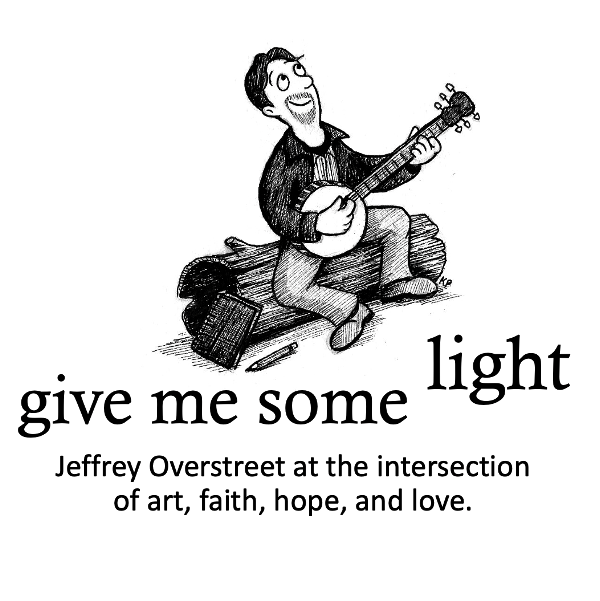
Regarding the technical difficulties at Looking Closer: These disruptions have begun — coincidentally, I'm sure! — after threats from some highly insecure bros who took offense when I raised some questions about Top Gun: Maverick. Apparently, somebody launched an attack on this site — ill-advisedly, as the attack has done far more damage to my host server than to me.
And here's the irony: In doing this, they've only strengthened my case that any ideal of masculinity that glorifies lawbreaking recklessness and obnoxious arrogance leads men into behaving like dangerous juvenile delinquents. "How dare you raise a critical question about Maverick? How dare you suggest that Top Gun glorifies immaturity and violence? In response, we're going to behave immaturely, and with violence!"
(Sigh.) Boys, boys, boys.... Such behavior by bullies bothered me when I was in second grade, and now it just makes me shake my head and feel sorry for them.
But hey — their vandalism has inspired some new creativity in me, and I'm delighted that Give Me Some Light already has so many subscribers! I call this a "win."
Favorite Recordings of 2022: #36 – #21
Why 36?
Because I had worked hard on preparing a list of 30 for you to explore — and then, after the clock on 2022 ticked down to zero, I finally caught up with a few more records that I'd overlooked, and now I can't wait to share them with you.
Despite all of the claims from critics across music journalism about the "best" music of 2022, the fact remains that our experiences with music are highly influenced by the contexts in which we attend to it, by our individual histories, by our relationships and communities, by our susceptibility to marketing and fleeting trends, and by our curiosities and questions and concerns. So you won't find me joining the clamor of those presuming they know what is "best." This is just a personal expression of admiration and gratitude for those favorites that moved, impressed, and inspired me, the music that made me feel grateful to be alive.
For me, 2022 was a year of challenges and growth. I received extraordinary affirmations for my teaching from colleagues and students, and I am deeply grateful to the committee who reviewed my record of teaching over the last few years and gave me an encouraging report. I traveled and spoke at other schools about faith and art, and I met new friends and colleagues there. While I struggled to find the time and resources to write new fiction, I wrote a lot of essays on cinema and music, and my work was published for the first time at my favorite film-criticism website: Bright Wall Dark Room. Then, 2022 wrapped up with a huge surprise: a promising opportunity for my writing that I did not anticipate. (I'll share details about that soon!)
But 2022 was also a year of grieving. I am grieving the ongoing betrayal of my country by compulsive liars, fear-mongers, and manipulative anti-Christs. I am grieving with those who have suffered lasting damage from COVID (and lasting damage from the COVID-deniers, anti-vaxxers, and anti-maskers who accelerate the ongoing pandemic). I am grieving with those harmed by wolves in disguise among communities of faith. Most of all, I am grieving the way my own academic community of faith has been repeatedly betrayed, undermined, and harmed by the fear and prejudice of the anti-intellectuals at the controls of the school. While I have never felt more purposeful in my teaching and my writing, I also feel as if I'm doing so on a ship sabotaged by its own captains... and sinking. I am watching a vision that has inspired me for more than 30 years dismantled by the very people who have the power to help it flourish.
Music is one of the languages of God that sustains me. I am so grateful for the rivers of song that continue to flow into my heart, strengthening me to endure another season. Music brings me the beauty, the poetry, the wisdom I need to remember the Grand Scheme, in which God's kingdom of Unconditional Love and Embrace overcomes all prejudice, all fear, all corruption. My dreams will be realized. Grace will overcome legalism. Courage will overcome fear. The hateful and the fearful will make a small noise for a while, but their empty victories will be overwhelmed by the Big Music of love.
Music gives me the melody and the vocabulary for rejoicing in that hope.
And I found that in these records. I enjoyed more than a hundred albums this year and these are the ones I am going back to again and again.
36–35
Sault — Air
Sault — Aiir
Sault released six albums and an EP this year. How can that be legal?
Even more impressive, every release from this mysterious British collective — we know Inflo and Little Simz are heavily involved, and we know several more names as well, but there's a lot that's still secretive about them — was worth listening to repeatedly. And each record was distinct in style and substance.
These two were epic works of symphonic orchestral music with powerful choral performances, and even so they were strikingly different from one another:
Air is epic in scope and overwhelming in its intensity. Coming on like a hurricane, it resonates with conviction and purpose, weaving a rich and classical tapestry of voices and instrumentation celebrating Blackness against forces of cultural and historical erasure.
For some perspective from an admiring critic who knows what they're talking about, check Shy Thompson atPitchfork.Thompson writes,
... [A]s the group makes a sharp pivot to lush contemporary classical, they take the opportunity to remind us that even a style of music seen as traditionally European has been deeply influenced by Black innovators. “Luos Higher” makes plucked stringed instruments and chants its centerpiece, drawing influence from the music of the Luo people of Kenya for whom the track is named. The delicate string work of “Heart” conjures the specter of an Alice Coltrane spiritual journey, while the nearly 13-minute symphonic suite “Solar” calls back to the exuberance of Julius Eastman’s kinetic masterpiece Femenine with its twinkling pitched percussion. Every piece on AIR wears its heart on its sleeve, conveying an emotional urgency that makes the album feel like SAULT’s most personal body of work, despite being mostly wordless.
Me, I find Air too much to absorb in its entirety, but I come back again and again to bask its glory the way I might cautiously inch my way out onto a promontory over the Grand Canyon.
The follow-up, Aiir, is half as long and easier to absorb and enjoy in one sitting, playing rather like a score for a silent film or a program of compositions celebrating natural wonders. With the track titles "4am," "Hiding Moon," "Still Waters," "Gods Will," and "5am," they suggest that this might be a meditation on what it takes to hold on through the longest, darkest part of the night until the first touch of dawn kindles a fulfillment of hope.
With either of these achievements, I feel like the 7-year-old I once was, choosing a mystery record from my grandfather's collection of classical LPs, putting on my grandfather's headphones that were too large for me, and losing myself in a very, very Big Music that both intimidates and enchants me.
https://youtu.be/-5OzNTZystM
https://youtu.be/iV92fPoUFig
https://youtu.be/0ENYJyLrdBQ
https://youtu.be/T1lkBZ8_Q7w
34
 Sault — 11
Sault — 11
The latest in Sault's albums with numerical titles is another eclectic playlist of neo-soul spirituals, pop, and hip-hop running on minimal bass beats and low-key grooves. It's like a multi-genre worship service driven by calls to "fear no one." As various authoritative sources of music criticism have been debating which record of the surprise five-album Sault surprise release is the best, Uncut is one of the publications that favors 11 as the finest:
12 is, marginally, the pick of the bunch, a mix of 11 pop miniatures, including the psychedelic A fro-pop of “Together”, the Brit-soul of “Higher”, the dreamy, quiet-storm R&B of “Fight For Love”, the slow-burning funk of “In The Air” and the funk-meets-ragga of “Glory”. Every track is a banger.
I may not agree that it's "the pick of the bunch" — you'll see which ones I prefer much nearer the top of this list — but I love it anyway. Here are the three tracks from 11 that are currently my favorites:
https://youtu.be/UNrlZiXjVGc
https://youtu.be/6ZQcvm50azM
https://youtu.be/65UT-rYhv6U
33 – 32
Maggie Rogers — Surrender
Madison Cunningham — Revealer
Here are two young women at the peak of their powers — or maybe that's not fair. Who know where they'll go from here? Whatever the case, both Madison Cunningham and Maggie Rogers got heavy rotation in my headphones this year, and I'll be tracking what they do closely from here on.
Rogers must be the biggest rock star to ever have earned a Master of Religion and Public Life degree from Harvard Divinity School. Is that evident in her hook heavy, arena-pop sound or lyrics? No. A review by at Yahoo describes the songs as “stories of anger and peace and self-salvation,” in which the singer finds “transcendence through sex" and "freedom through letting go.” But when Rogers' put her own words (for Apple Music) to the album's driving idea, it sounds like the heart of the Idles album Joy As an Act of Resistance that topped my list a couple of years ago: "... joy as a form of rebellion, as something that can be radical and contagious and connective and angry.It has the intimacy of an album recorded in her family's New York City garage (which it was) and also at Peter Gabriel's Real World Studios in England. I think that will make sense when you hear it.
It's Cunningham's album where I can hear the struggle of faith. And that's what faith is, right? A struggle? If it isn't, it isn't faith. Faith is a risk. It's the assurance of things hoped for, the conviction of things not seen. And I hear that in the opening track, as the singer speaks to an unnamed other who has been "all I've ever known," but whom she's not sure exists:
Will you take me as I am?
In perfect obedience to all these demands
I'm a child to the wonder but a victim of the change
When I see you again, will I know what to say?
I hear nothing, no rescue coming
Just church bells drawing out the dogs
I'm afraid that you were made by invention and odds are
I may never know
I can't help but wonder if Cunningham might not have been inspired by Sam Phillips, the once-Christian-music-pop-star turned poet of doubt and longing. After all, she's dancing in a blurred spin on the cover, just as Phillips did in her pivotal album The Turning.
In "Who Are You Now," she sings lyrics that match my own exasperation when I think of the double-speak of the evangelical culture in which I grew up:
Who are you now?
Who are you this time?
...
Whеn did war become sensiblе and love unfair?
But if I'm being honest, I play Revealer first and foremost for the inventive interplay of fuzzy guitars, complicated rhythms, and acoustic experimentation that keeps it feeling fresh, particularly in "Collider Particles."
https://youtu.be/iZjR6V6Adrk
https://youtu.be/dJqEOkmkeuM
https://youtu.be/0Da6AvsegGs
https://youtu.be/2BZ70WMjCMQ
31
 Jack White — Entering Heaven Alive
Jack White — Entering Heaven Alive
If I'm honest about why I still listen to Jack White, I'll give the same answer I've always given: hooks and riffs. The guy just seems as divinely inspired as anyone in modern rock when it comes to cooking up a searing guitar line that you'll never get tired of hearing. His lyrics rarely intrigue me, and even more rarely move me, and his vocals have a certain Robert Plant-ish edge to them. But if it weren't for the guitars, I wouldn't show up. So I'm surprised that this release, arriving just a few months after the stranger and more experimental Fear of the Dawn, made a stronger impression on me than any previous Jack White work. I think it's the strong bones of the songwriting, the constantly surprising and richly layered sonic effects that set off fireworks within those songs, and the cinematic qualities of the storytelling (and which are explored in ambitious videos like the one attached here).
https://youtu.be/Jv6Fc04ragc
https://youtu.be/JF30GpW__vo
30
 Metric — Formentera
Metric — Formentera
Metric was, for me, one of 2022's biggest and most exciting rock discoveries. As I listened to Formentera, I realized how much I've been missing those '90s-era huge rock sounds driven by gutsy, expressive female vocalists — like Belly's Tanya Donnelly or PJ Harvey. In 2021, Wolf Alice grabbed my attention and never let go, and their live show was exhilarating. This year, Just Mustard is on the scene and kicking me in the face. But now I've discovered that I don't need to look for brand new talents; maybe I just need to look for those I've been missing. Apparently, Metric's been pumping out bold rock albums since... 1998?! How have I missed them? Critics seem to agree that Formentera is bigger, bolder, more ambitious than anything they've ever done, but I'm loving it so much I'm compelled to work backward to find out what I've been missing. Here are three tracks worth sampling: I love the epic lament for our self-inflicted downward spirals of online despair called "Doomscroller"; I love the relentless momentum of "What Feels Like Eternity"; I love the hushed anticipation of "All Comes Crashing" that delivers payoff after payoff when those heavy Cure-like drums kick in for the chorus. Metric has a new fan, and I'd really love to see them live.
https://youtu.be/YjNytMN4QL0
https://youtu.be/_GesZGGvlNc
https://youtu.be/F0RQVKTZQpI
29
Patti Griffin — Tape: Home Recordings and Rarities
The deterioration of Patti Griffin's voice after her recent cancer treatments has been a tragic loss to American music. I saw her give an heroic performance at the Nowhere Else festival in October of 2021, boldly delivering a whole show of great songs, riding on the support of her enthusiastic and faithful fans. But it's hard to accept that the voice we loved so much for so long isn't coming back.
Thus, when I discovered this release at the very end of the year, it felt like a Christmas miracle: a modest collection of archival recordings that hold together remarkably well as an album. "Don't Mind" is another playful, high-energy highlight of her dynamic-duo collaborations with Robert Plant. "Sundown"
But my favorite track is "Night," which speaks of a deep intimacy with depression — or, worse, despair — in some astonishing lyrics:
Night, you come and sing the songs
Of birds that have no eyes
Of birds that never fly
Of birds that tell me lies
...
Night is watching from the tower
Turns on the electric fence
The night can make you disappear
Without a trace of evidence
Night is like judgement
Where nobody speaks on your behalf
You hear yourself calling out loud
And you hear the night laughing back...
https://youtu.be/Q-79s2WP_WA
https://youtu.be/aYQ0dBvs1Cs
28–27–26
Beyoncé — Renaissance
Rosalía — Motomami
M.I.A. — Mata
I rarely feel so ill-equipped to write about music than when I write about artists like these — hyper-confident, hyper-talented divas of the dance floor, rising from experiences, cultures, and traditions quite foreign to me, and leading a vast host of devoted and adoring young female fans. And sometimes I'm tempted to keep my enthusiasm to myself for fear I'm trying to look like someone much younger than myself. But I genuinely enjoyed all three of these records repeatedly this year, not only because they challenge me to really listen and expand my horizons, but because their energy and creativity give me hope.
And if you have to go to work day after day in a "Christian nation" where misogynists, racists, and anti-christs still have fierce grip on the controls, I recommend driving in a car that pulses with the extravagant beats of these three records, from these three divas, who suffer the effects of cultural oppression far more directly than I ever do, and who invest their work with inspiration for those they hope will rise up and change the world. Their motivational zeal, audacious imaginations, hyper-colored sounds, and irrepressible joy are proof enough that God is alive and well within them. And their music was a life-giving adrenaline shot morning after morning for this 52-year-old white guy's weary heart.
https://youtu.be/jSAHnBS1SHA
https://youtu.be/5LugDbaqk8o
https://youtu.be/rzk20hkG6P8
https://youtu.be/yjki-9Pthh0
https://youtu.be/81j9gt1rXuk
https://youtu.be/aG5C32aATKc
https://youtu.be/WH95KAWS2-o
25
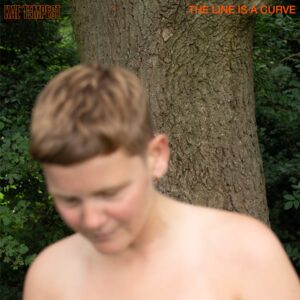 Kae Tempest — The Line Is a Curve
Kae Tempest — The Line Is a Curve
Mercury Prize-nominated Kae Tempest has become a regular on my annual lists, and much of that has to do with their impressively literary work — not just in rap, but in the poetry, the plays, and the novels they've written. So much hip-hop focuses on the performer's ego and sense of being disrespected, but Tempest's focus is on the work in a way that earns respect without being preoccupied with it. If you've been following their journey, you've noticed the name change, noticed the transition, and tracked the trouble through song after song about the quest for authenticity and wholeness. With blunt-force honesty in one hand and the power of love in the other, she's poised to knock the literal hell out of us. I'm reminded, as she performs, of the power of Jericho Brown's poetry recitations. And there's a moment in "Grace" at the end of this record that feels like an epiphany, a breaking out of the storm into open, blue skies.
For a full review by critics who know the genre better, read Emma Madden at Pitchfork or Timothy Monger at AllMusic.
https://youtu.be/S8gymPzmtZs
https://youtu.be/Tvz_fxrNZ9o
https://youtu.be/ay3R8dNmLZc
24
 Kendrick Lamar — Mr. Morale and the Big Steppers
Kendrick Lamar — Mr. Morale and the Big Steppers
Kendrick Lamar is the most interesting rapper recording today, in my opinion — not only for his wisdom, his writing, and his vigorous engagement with questions of faith (which are inseparable from questions about social justice), but also for his sonic adventurousness. Both To Pimp a Butterfly and DAMN. have been records that challenged me, frustrated me, inspired me, and ultimately expanded my understanding of and love for my neighbors and my world. So I've been eagerly anticipating this one.
And, to Lamar's credit, it is not what I might have hoped for. I mean, I wouldn't know what to hope for from him, but I probably would not have jumped to vote for an album of such abrasive and discomforting material. That is, ironically, why I have to put it on this list: When you listen, you'll know that this is the album Lamar needed to make: He had to release the storms roiling in his head and heart, and they are messy storms, full of struggle, shame, insecurity, and vision. It's going to be an album I listen to rarely, but when I do it is going to demand my close attention, my patience, and a willingness to step outside of my comfort zone to ponder complicated personal matters: confusion, confessions, rants, rage.
Mr. Morale and the Big Steppers lacks the kind of highlight tracks I would usually share with others in hopes of inspiring their curiosity. "Crown" is currently my favorite because I do connect to that one, as someone who tends to sabotage his own peace of my mind by overcommitting to too many parties, expecting too much of myself in pleasing everyone. The mantra/chorus "I can't please everybody" is one I've been singing a lot lately.
I'll post a few tracks here that I have found most rewarding in the few times I have struggled through. Am I including this album because I feel that a more sophisticated critic would? No. I'm including it because I grow when I am challenged, and this is a strong challenge. I may not much enjoy it much, but I admire it, and I am learning from it. For that, I am grateful.
Here are some words from critics better equipped to write about the reigning king of hip-hop:
Jon Caramanica in The New York Times :
"Lamar, 34, is an astonishing technician, a keen observer of Black life, a proletarian superhero, an artist who reckons with moral weight in his work. But judging by “Mr. Morale,” which was released on Friday, he is also anguished, ravaged by his past and grappling with how to make tomorrow better, besieged by a collision of self-doubt and obstinacy. And fallible, too. ... The Lamar of Mr. Morale sounds lonely and tense, increasingly aware of the burdens placed upon him by his upbringing and potentially unsure about his capacities for overcoming them.
...
If To Pimp a Butterfly from 2015 was Lamar’s social polemical peak, and DAMN. from 2017 was his anxiety album — the product of realizing how his very private thoughts were becoming very public and scrutinized — then “Mr. Morale” is about retreating within and pondering your accountability to the person in the mirror, and to the handful of people you keep closest.
Stephen Kearse at Pitchfork:
Despite all its aggrieved poses and statements, the often astonishing rapping, the fastidious attention to detail, and its theme of self-affirmation, Mr. Morale & The Big Steppers ironically never settles on a portrait of Kendrick. Perhaps that slipperiness is the thrust of the album, which might be read as his answer to a question he asked a decade ago, before he was anointed as hip-hop’s conscience: “If I mentioned all my skeletons, would you jump in the seat?” That fear of being defined by trauma and shame resonates throughout, but Kendrick and his blemishes are so defined by negation—of white gazes, of Black Twitter, of weighty listener expectations—that by the time the record ends, Kendrick’s “me” is just as nebulous as the effigy he’s spent the album burning.
Tom Breihan at Stereogum:
On opening track “United In Grief,” Kendrick says he went and got himself a therapist, and it’s like: Yeah, no shit, buddy. If it’s anything, Mr. Morale & The Big Steppers is a therapy album. Kendrick spends the bulk of the record interrogating his own perceived failures. He talks about his “lust addiction,” about his “daddy issues,” about dealing with “writer’s block for two years.” Eckhart Tolle, a German spiritual-leader type who I’d never heard of before this morning, pops up multiple times. On “Savior,” Kendrick directly addresses the idea of his own importance, and he repeats over and over that he can’t be the leader that some people want him to be. He’s not even sure that he can be the man the he wants himself to be. It’s a necessary corrective.
...
Kendrick Lamar already won. He’s almost universally acknowledged as an all-time great rapper, an artist of the highest order. Mr. Morale & The Big Steppers is a fascinating, engrossing answer to the question of what a Kendrick Lamar album might be in 2022. It’s not even just one album; it’s two, even if I don’t totally understand how the two halves of the album are supposed to be different from one another. With this album, Kendrick makes it clear that he can’t and won’t be all things to all people. He’s not the voice of a generation. He doesn’t even have his own shit figured out, and he’s worried that he’s doing more harm than good in the world. He’s definitely not down to be a corporate avatar for social progress and racial reconciliation: “Capitalists posing as compassionates be offending me/ Yeah, suck my dick with authenticity.” An album like this could’ve been a long-delayed victory lap. Instead, it’s self-consciously knotty and clumsy and sometimes ugly. I don’t agree with all the ideas that the album presents, but I love how wild and ungainly it’s willing to be.
https://youtu.be/eL1L287YbkQ
https://youtu.be/Vo89NfFYKKI
https://youtu.be/0kS-MtxPr9I
23–22
Chagall Guevara — Halcyon Days
Midnight Oil — Resist
Dear Chagall Guevara, thank you. Thank you for making it happen. Steve Taylor had a tremendous formative influence on my understanding of faith and art in the late '80s, so when you jumped the barbed wire of the Christian music industry and released your first full album to those thrilling rave reviews, it was exhilarating. As one of your first fans in 1990, I bought the Pump Up the Volume soundtrack as soon as it was available just to have your song "Tale of the Twister." Your full album remains my favorite hard rock record of the '90s, and that explains why the band's breakup in '93 was so disappointing. No rock band I know have ever had lyrics quite like yours — fierce, literary, searing, funny. I hoped for your reunion until such a possibility seemed too far out of reach. So this return thirty years later made me more than a little nervous. Could you recover the energy? The voice? The vision? The answer, much to my relief, is yes. You sound like you're picking up right where you left off, and your wisdom about the troubles of 2022 shows that your vision is more necessary than ever. Thank you.
Dear Midnight Oil, please help me to tap into whatever serves as your power source. You have maintained a sense of focus, of energy, of excellence across four decades. And you are still raging with righteous rock-and-roll anger without allowing it to corrode your spirits. Thank you for all you have given us. I wish U2 was still capable of cooking up a song like "Nobody's Child" and then delivering it with the furious abandon of 18-year-olds.
https://youtu.be/-A8nyGFCty0
https://youtu.be/NNt9MuB6xRs
https://youtu.be/IGEKtaJiKjQ
https://youtu.be/lHg_iSv4lpg
21.
 Florist — Florist
Florist — Florist
Reminding me of how Luluc's Passerby stole my heart a few year's back, Florist's quiet, complex, deliriously poetic reflection on birth, childhood, family, love, sex, loss, and death is truly epic. I love the lyrics, the exquisitely layered dreamscapes of sound, and the experimental instrumental interludes that give us time to meditate on what's just been sung. I wish more bands would give themselves the freedom to explore instrumental music. Not everything has to be a radio-ready hit. The reason I find Radiohead so much more interesting than U2 over the last 20 years has been Radiohead's consistent interest in music over pop formulas. I could listen to them play ten minute versions of any of their songs just to enjoy their experimentation and exploration. Florist has that curiosity, that patience, that interest in color and texture; the music is the thing — it isn't just there as a setting for the words.
The song "Red Bird Pt. 2 (Morning)" has made me toy with the idea of making a playlist full of songs that are built from the template of Leonard Cohen's "Suzanne." R.E.M.'s "Hope" would be there, and quite a few others as well.
https://youtu.be/pnzrmr5Y1a8
https://youtu.be/gRcnxdO9IC4
Favorite Recordings of 2022: Part One — Honorable Mentions
On December 24, as our home was aglow with Christmas music — Over the Rhine, Bruce Cockburn, Don Peris, Loreena McKennit, Louis Armstrong, Vince Guaraldi — and we only had one week left until 2023 began, I began writing my year-end posts.
Eleven days later, I'm still amending them, as I am still exploring and discovering 2022's wide, wild world of imagination — new releases for sound and for screen that impress and inspire me. And over the next few weeks, just as I have done for decades, I'll post my annual list of my top 30 (or so) favorite recordings of the year and my top 30 (or so) films of the year.
This is one way I celebrate and express my gratitude, even if I doubt that many of the artists will ever see what I write. This is also my favorite way of offering recommendations for others to discover treasure they might have missed. Your feedback is welcome. I wouldn't be publishing this if I wasn't persuaded to continue by the meaningful responses I receive from readers who value the discoveries they make here.
And, as usual, I'm having a terrible time narrowing down the list. There's just too much good music in so many genres. If an album captures my attention, if it makes me want to read all about the artist and the recording, if it makes me want to spend time with and interpret the lyrics, if it makes me want to play the album over and over again to be enchanted or challenged by the sound, well... it's going to be on these lists.
Since I'm still organizing my list of the top 30 favorites, I'll begin by publishing a list of albums that I want to include on that list — records I've enjoyed over and over again. Ask me tomorrow, or ask me in six months, and maybe I'll have changed my mind and found a place for them in my Top 30.
I listened to each of these "honorable mentions" several times this year — usually in the car on my commute, or on a road trip, or while I was grading papers or cleaning the kitchen. Some of them got me dancing while I organized my office. Some of them imparted wisdom, vision, and hope. Some of them gave me ways to name things I had not found words to describe. Again — I am grateful. If an artist or an album show up here, it's because I'm saying "Thank you."
"Bonus Materials" — Unexpected Archival Recordings from Rock Legends
David Bowie — Toy
This posthumously released "lost album" doesn't do much for me in its final form. But the two discs of alternate versions are jam-packed with surprises and treasures, like this gorgeous mix of my favorite song from the project: "Conversation Piece." Check out thorough and thoughtful reviews at The Guardian and ArtFuse.
https://youtu.be/kQfaGvObGM8
Bruce Cockburn — Rarities
A lively zigzag through rough takes touching on so many of Cockburn's modes and styles, featuring some early versions of songs that evolved considerably before they appeared in their final album versions. Here's some perspective at Blues Rock Review.
https://youtu.be/uBCTzRmykG4
Timeless Live Shows
Prince and the Revolution — Live
It's been a long time coming, but this ultimate concert from Prince and the Revolution finally got a proper audio release this year.
https://youtu.be/eNyMQZamzKE
Levon Helm / Mavis Staples — Carry Me Home
This may be my favorite Mavis Staples album, and the fact that these are all live takes in collaboration with the legendary Levon Helm... that makes this record so much richer and more rewarding.
https://youtu.be/7hvPwNo0R88
Summer of Soul (...Or, When the Revolution Could Not Be Televised): Original Motion Picture Soundtrack [Live]
The film came out in 2021, but the soundtrack album came out this year, and it stands alone as an essential double-live album.
https://youtu.be/HhMSZKIpWMk
The Rolling Stones — Live at the El Mocambo 1977
Peak performance double-live album from the Stones may be my favorite single package of their greatest hits. It's performed with such wild abandon.
https://youtu.be/bwHdC_tfVgY
Loreena McKennitt — Under A Winter's Moon (Live At Knox Church, Stratford, Ontario 2021)
Such great storytelling — by such great storytelling voices! — stitches McKennitt's performances together. I put it on as background music at Overstreet Headquarters as we were preparing for Christmas, and it very quickly became a Major Event for all of us. Yes, even our new fuzzy family member Special Agent Alonzo Mosely came close to the stereo, curled up in a ball, flipped over on his back, and fell into happy dreams. Great Christmas albums are always events worth celebrating because we know they'll become part of the fabric of our Christmases for years to come.
https://youtu.be/5kPkhbmRqSQ
Promising New Band
Just Mustard — Heart Under
If I had a "Most Promising New Band" award, I might give it to Just Mustard. There's a real Twin Peaks darkness to their sound, and some of the Wolf Alice energy that I'm a sucker for.
https://youtu.be/NAe0XFNJl9k
Exceptional Collections of Covers
Bruce Springsteen — Only the Strong Survive
First on my list of impressive collections of covers this year is Springsteen's soulful and surprising program of favorites. "Night Shift" is one of those songs I grew up with that I always enjoyed and didn't realize how deeply it was sinking into my DNA until it figured prominently in Claire Denis' masterpiece 35 Shots of Rum. The Boss sings it well. Sweet sounds coming down, indeed!
https://youtu.be/jEGdc9Rvr5M
Valerie June — Under Cover
My favorite covers record has the best title for a covers album. How has it never been claimed before? I've admired Valerie June for years, but this record got a *lot* of play on my car stereo this year. Every track is a brilliant choice, and every performance is surprising. Here's my personal favorite — although I really like her covers of John Lennon's "Imagine," Nick Cave's "Into My Arms," and Mazzy Star's "Fade Into You" as well.
https://youtu.be/YraJJiboEHs
Lucinda Williams — Funny How Time Slips Away: A Night of 60's Country Classics
Even though I don't like the placement of the apostrophe here, I'm so glad this album didn't slip past me. (It almost did.) I love this project, and I gotta say that almost all of these songs are new to me. Nothing like the blessing of the master to bring them to my attention.
https://youtu.be/vl8KL0tKLB4
Living Legends Doing What They Do Best
Brian Blade / Christian McBride / Brad Mehldau / Joshua Redman — LongGone
They're back, they're live, and they sound like they're having the time of their lives. The best kind of victory lap for a band is the kind that suggests they're joyfully invigorated by the knowledge that they still have unfulfilled potential. Blade, McBride, Mehldau, and Redman still have chemistry as great as any other four-man band going. When people say "I love jazz," they can mean all kinds of things. When I say "I love jazz," this is what I mean: the thrill of inspired improvisation within community, where it sounds like it might fly to pieces at any moment and then something happens that tells you they're so in tune with one another that they can make a beautiful hairpin turn.
https://youtu.be/YcHVXyjaBGY
Elvis Costello & the Impostors — The Boy Named If
With strong echoes of his Spike era, lyrics as literary and ambitious as any he's written (and sometimes a bit too cryptic because of that), Costello sounds as motivated as ever, singing with gusto that few his age could muster at a microphone.
https://youtu.be/KZU9b4NOQBQ
Bill Frisell — Four
And here's another quartet of combustible imagination: Bill Frisell with Greg Tardy, Gerald Clayton, and Jonathan Blake. Melodic, playful, and harmonic in a way that makes it difficult to understand if one of them is taking the lead or if each one of them is acting as the front man. A joyful ride in which you feel every player serving the music instead of stepping into a spotlight.
https://youtu.be/uV9mZh5RwiI
Pixies — Doggerel
https://youtu.be/10H7YGssFD4
Tears for Fears — The Tipping Point
I did not have Tears for Fears delivering an album to rival their best work on my 2022 Bingo card, but this one is so much better than just a visit from old friends. It feels like the kind of comeback album I wish Peter Gabriel would make — sincere, heartfelt grief and longing and hope, drawn from lived experience but applicable to the whole world.
https://youtu.be/Oc7whFL5UEk
Familiar Names, Unexpected Off-Road Adventures
The Mountain Goats — Bleed Out
Is this the first time they've shown up on one of my year-end lists? Perhaps. I'm warming to them, but very slowly — I started listening more than a decade ago. But the good humor of this record, the audacious concept (an album of songs built on action movie cliches and tropes), the playful lyrics, and the pedal-to-the-metal guitar rock of this one have won me over.
https://youtu.be/FesuReuhye0
Shearwater — The Great Awakening
They could have followed up Jet Plane and Oxbow, their greatest achievement yet, with another big '80s-flavored, U2-esque rock adventure. Instead, they chose to move inward to stranger, more haunting places. I haven't yet connected with this album in the same kind of personal way, and there are few moments I find as exhilarating as the sense of inspiration pulsing through the previous effort. But this is still an outstanding, enthralling record with so much on its mind and its heart.
https://youtu.be/jpKBcimnhFM
Professionals Maintaining High Standards
Pedro the Lion — Havasu
At Pitchfork, Ian Cohen calls it "the most minimal and insular Pedro the Lion album yet," and I agree with that. This isn't the album I'll recommend if I'm hoping to make somebody a fan of Bazan — it's so introspective and focused on its storytelling integrity that it is (rightly) less interested in rocking out, catchy choruses, or exhibitions of the band's particular chemistry and strengths. But Bazan and company achieve what they set out to do: they deliver another complex chapter in Bazan's serialized memoir of the cities in which he lived and how his experiences there shaped him. Cohen writes, "Whereas their 1998 debut It's Hard to Find a Friend took an accusatory tone towards those who would sacrifice their principles for social acceptance, on Phoenix highlight 'Quietest Friend' and the new album’s 'Own Valentine,' Bazan empathizes with his younger self as someone who used manipulation to fill a void of self-esteem."
https://youtu.be/ap7jsXS36OQ
Calexico — El Mirador
Differently than Pedro the Lion's album, El Mirador might be a perfect album for introducing others to Calexico, a band that fuses "the dusty sounds of the American Southwest with spaghetti western soundtracks, cool jazz, and a broad spectrum of Latin influences" (Mark Deming, AllMusic). As Heather Phares at AllMusic writes, El Mirador blazes with "praise for the people as well as the place that made them who they are, and they express that gratitude in songs ranging from the communal vocals of 'Liberada' to 'Constellation,' which traces the connections between people over winding guitars and flares of brass. The pandemic moved Calexico to celebrate all the good things in life, and this celebration includes the Latin influences on their music." When things were grey in Seattle this year, I found myself longing to drive open roads in the Southwest, and if I put on El Mirador I felt like I was halfway there.
https://youtu.be/EMeinq7I__w
Death Cab for Cutie — Asphalt Meadows
I didn't expect Death Cab had another substantial album in them at this point, and I really didn't expect it would be my favorite thing they've done since Transatlanticism. Just listen to the spiritual longing at the heart of this track:
https://youtu.be/yo3eHwbDwDs
Jack White — Fear of the Dawn
Jack White released two substantial albums this year. This one hits several memorable high points, particularly the opening track (linked). The other one will show up on my top 30 list, so watch for that soon.
https://youtu.be/q8IbI626k8Y
Arcade Fire — WE
I had very mixed feelings about this album from the day it arrived — glad to see them scaling back from bloated double-albums, still wishing the air of self-importance would burn away, glad to hear them recapturing some of the near-chaos that made them a singular act both on record and on stage, still wishing that they'd pull back from a sermonizing "We Are the Prophets of Our Age" presumption. But then came the scandal — the exposure of yet another white male of extravagant privilege as a sexual opportunist, and the disclaimers and excuses that then diminished what had been for many a sort of ideal marriage-in-the-rock-spotlight. But I can't let behind-the-scenes shenanigans interfere with my assessment of the art itself. And, as far as that goes, here's a record that delivers solid examples of what has made Arcade Fire distinctive and meaningful, even if it doesn't reveal any notable innovations. And they get extra credit for bringing the voice of Peter Gabriel back to my headphones.
https://youtu.be/dXGUMVoOPlk
The New Royalty
Florence + the Machine — Dance Fever
I've admired this band for a while, but I can't say I've played any of their albums repeatedly over the course of a year with confidence that I will continue to revisit them. This one feels like it has lasting power, and there's a joy in it that I haven't associated with the band before.
https://youtu.be/nUUhHTx1KYY
Mitski — Laurel Hell
There should be some kind of award for a singer-songwriter who contributes the best end-credits song in a movie. And this year, Mistki would be the front-runner, as her collaboration with David Byrne was a highlight in Everything Everywhere All at Once and her cover at the close of After Yang was also perfect for the occasion. Neither of those songs appear here, but the album won't disappoint anybody who hear either of those songs, got curious, and sought this out. Also, in a time when few musical acts have a broad drawing power across varied populations of young people, Mitski clearly has their ear. There were posters on SPU's campus advertising a listening party for the occasion of this album's arrival.
https://youtu.be/2ByCR2DRids
Sharon Van Etten — We've Been Going About This All Wrong
A bit of a letdown after 2019's spectacular Remind Me Tomorrow, but very strong nevertheless. I knew the first time I heard this track that it would be among my year-end favorites.
https://youtu.be/U7EKQTVvYHE
Lush Symphonic Pop
Basia Bulat — The Garden
If I had been following Basia Bulat before 2022, I would have encountered these songs on first five albums in more conventional pop/rock arrangements. But my introduction to this Polaris-Prize-nominated artist came here, on this special release, featuring arrangements for string quartet. It's a beautiful collection, and now I want to work backwards to find out what I've been missing. Perhaps this song will be familiar to you, or perhaps not. Either way, I suspect you'll want to play it more than once and then hear the whole album.
https://youtu.be/peNeXSxhvcs
Weyes Blood — And in the Darkness, Hearts Aglow
While this ambitious, lush, and glorious new album feels heavier and darker than Titanic Rising — and how could it not, given the apocalyptic years in which it took shape? — the beauty of it is heartening. Perhaps there's something reassuring about big symphonic sounds during (and, increasingly, after) years of isolation. I know a few folks who revere every note that Natalie Mering records, and they're people who eat, sleep, and breathe music more passionately than I do, so I suspect that I will go on warming to this record as I did to the last one. There aren't any songs that move me like "Movies" did, but at this writing the track that is sticking with me most is this one: "Twin Flame."
https://youtu.be/9zeCbFjZfjY
Exceptional Singer/Songwriters
Aoife O'Donovan — Age of Apathy
This Joe Henry production certainly sounds impressive all the way through, and O'Donovan's songwriting and performances are strong. I can't say the songs connected with me in a personal way, although I know this was a big favorite of some close friends for much of the year. But this is the first O'Donovan release that has kept me coming back intrigued again and again.
https://youtu.be/8rblZ8EAhrk
Erin Rae — Lighten Up
One of the year's big discoveries for me was Erin Rae, a recommendation from my friend and colleague Dr. Traynor Hansen. Rae's voice is distinctive, her songs a dreamy blend of classic Nashville pop and country sounds blended into a style that goes down easy and sometimes reminds me of She & Him.
https://youtu.be/g-m20tYLoCM
Laura Veirs — Found Light
In a sad scenario that recalls the breakup of the dynamic duo T Bone Burnett and Sam Phillips, Laura Veirs was divorced from her husband and producer Tucker Martine, leading to this album of breakup-and-start-again songs, mapping the hard emotional territory of trying to dream up a future while still feeling tangled up in blue. The result is some of Veirs' strongest work, and the production by new collaborator Shahzad Ismaily is inspired without being flashy. It's a hopeful and gracious record considering the circumstances.
https://youtu.be/SwnKz-9cXLA
Veterans Still Trying New Things
Bjork – Fossora
I admire it. But I also endure it. I marvel at it. But I am also perplexed by it. In other words — it's a late-career Bjork album.
For a deep dive, read this New York Times study by Jon Pareles, or this review by Jill Mapes at Pitchfork.
https://youtu.be/2zMK3GRpJs8
Nick Cave — Seven Psalms
It's Nick Cave. It's poetry. It's prayer. That describes a great deal of his music, but here it's a rare and intimate occasion — spoken word, Psalm-like concentration.
For more, visit The Guardian and Pitchfork.
https://youtu.be/o76_WMG6JLo
Brian Eno — FOREVERANDEVERNOMORE
And speaking of prayers, here's Brian Eno sounding resigned to the fact that a post-human era is coming on this planet. And yet he also sounds hopeful, content, even encouraging. Here is an hour of much-needed zen for hard times as those with their hands on the controls seem blind to the rising tide of trouble.
Here's Jon Pareles at The New York Times, and Tal Rosenberg at Pitchfork.
https://youtu.be/jlJDUcdUz8c
Daniel Lanois — Player, Piano
I'd be lying if I said that any album on this list is going to get more play than this one. Daniel Lanois at the piano? I can't think of anything I'm more likely to reach for, looking for solace during the hundreds of hours I will spend reading and grading papers in the coming year, or seeking a soundtrack as I compose chapters for a new book. This is a playfully creative, predictably meditative, electronically enhanced program of contemplative performances. I already know it well from beginning to end.
https://youtu.be/Jzx4ywaB7UI
New Volumes in Notable Series
Robert Glasper — Black Radio III
Every time I listen, I find myself adjusting the ratings I've given the songs on Apple Music. That's because Glasper weaves the threads of R&B, jazz, hip-hop, and pop so skillfully that the songs strike me very differently every time I hear them. Right now, I'm inclined to share this unlikely re-working of Tears for Fears' gigantic '80s classic "Everybody Wants to Rule the World," but perhaps I should instead by sharing "Black Superhero" featuring Killer Mike and BJ The Chicago Kid. I haven't returned often to the first two volumes of this ongoing series, but each one has been a good way for me to hear contemporary sounds sewn seamlessly into a context of classic sounds, and a way to have my assumptions about genres challenges as their definitions dissolve.
https://youtu.be/m_lRJ_T5xYg
T-Bone Burnett / Jay Bellerose / Keefus Ciancia — The Invisible Light: Spells
The Master Producer is still playing the half-mad prophet on this second volume of a series focused on rhythm, electronics, and a technological Apocalypse. As with the first volume, Burnett's spoken-word delivery is haunting, heavy, and surreal, as if he's narrating the end of the world in a mix of horror, heartbreak, and wild hope. There are rants, there are chants, and there are strange collage-works of voices, all sailing through swells of Jay Bellerose's stormy percussion and illuminated by Keefus Ciancia's keyboard innovations. When Burnett declares "It takes more courage to love than to hate," he sounds like someone who knows from experience and who is struggling to find the strength to try faith, love, and hope again.
https://youtu.be/kZflL6ZJHPM
Coming up next: my 30 Favorite Recordings of 2022 ...
Twas the season of "comfort food" movies...
At our house this week, as in so many houses, at so many family gatherings, we’re watching old favorites: movies that taste like comfort food. For example, Anne and I just revisited Stranger Than Fiction, the Marc Forster-directed comedy starring Will Ferrell, Emma Thompson, and Dustin Hoffman, because we remember how much it made us laugh. I was delighted and surprised to discover that the film still moves me. Tidings of comfort and joy!
How does a movie come to qualify as comfort food? I’m sure it’s different for every family. But it seems like a comfort movie has to be, well… comforting, in some measure. And comfort might come from memories: We saw these movies with people we loved. We saw these movies at formative times. We saw these movies repeatedly, moved through their paces like churchgoers through a liturgy. They became inseparably associated from times and places that remain important to us.
The most popular comfort-food movies are accessible enough to welcome a wide range of viewers — those young and old, of different economic circumstances, of different cultures and traditions.
But the best comfort movies offer some kind of timeless truth that give us a sense that our hearts are being re-tuned, like weary musical instruments that have fallen dissonant from hard work or neglect.
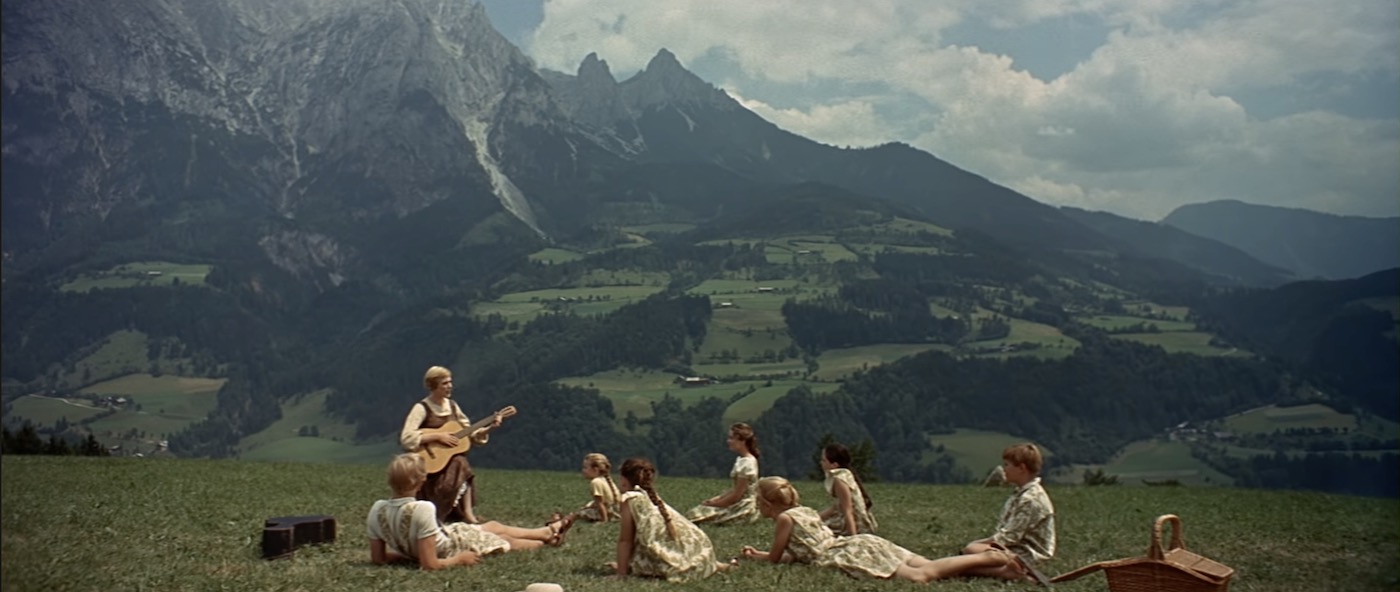
When I was a kid, the only film that really qualified as comfort food in my family was The Sound of Music. We watched it over and over again. It promised us in a Cinderella sort of way that the poor would be lifted up, that those who grieve would be blessed with a restoration of what they had lost, that a family would sing together in harmony.
In the years since my holiday tradition expanded beyond my immediate family, other works of art became familiar favorites that played well for audiences of two or twelve. Rob Reiner’s The Princess Bride. Peter Hedges’ Pieces of April. Peter Jackson’s The Fellowship of the Ring.
This year, Anne and I revisited one that we’d each enjoyed repeatedly with friends even before we met. It’s a popular choice for a lot of families and communities. And now that I’ve seen it again, I hope it remains so.
We watched Planes, Trains and Automobiles.
I’m wrapping up 2022 with a "comfort food" review for several reasons:
I want to conclude this year's posts with a celebratory note, and Planes, Trains and Automobiles is a celebratory movie. What am I celebrating? Well, Christmas, of course. But I'm also celebrating some good news that I've just received that was completely unexpected. It's too early for me to "go public" with the news, though... so check back over the course of January and February, and I should have details.
Another reason: It's time I gave some good attention to a movie that I know most moviegoers already know and love. I’ve been writing about movies for more than 30 years — and more than 20 at Looking Closer — I’ve grown more and more adventurous in my moviegoing, and I’ve learned to appreciate a wide range of cinema from around the world. My writing on lesser-known films — take my longtime personal favorite, 1987’s Wings of Desire, for instance — has sometimes triggered readers into accusing me of being pretentious and snobbish, as if it’s arrogant and insulting for a person to gain an appreciation of an art form that isn’t already popular. And, even recently, when I've highlighted the weaknesses of a popular movie — like, say, Top Gun: Maverick — I've been slammed for being an "elitist."
I’ll bet those who find arrogance in my recommendations have passions of their own — subjects about which they know more than most, subjects about which they can speak with specificity and authority, subjects on which they are specialists. If I sit down to watch the World Cup with those who eat, sleep, and breathe soccer (they would say football, and they’d be right to do so), would they be guilty of snobbery they discussed aspects of the game that I, as a novice on the subject, don't immediately understand? Of course not. They've studied the game. They have every right to have more advanced standards of judgment based on their deeper understanding of the game.
When you see more than a hundred movies a year from all over the world — as many professional film critics see more than 300 a year — you pick up new vocabulary. Your tastes grow and change. Your interests and preoccupations evolve. I’m not nearly the specialist on cinema that a lot of critics are, but there are movies I love now that would bore most of my friends and would have confounded me twenty years ago. I don’t write about obscure, abstract, arthouse films to show off — I write about them because I want others to discover and enjoy what I am discovering and enjoying, and I want to join conversations about those films already in progress.
What's more — I want to learn from those who have explored parts of the cinematic world that I haven’t yet discovered. Their expertise doesn’t threaten or offend me; it excites me.
Now, I'll be the first to admit that some critics do deserve criticism for being pretentious and snobbish. Some do speak with arrogance and condescension. And if we turn up our noses at things that seem simpler to us now, we forget that we have grown into our appreciation of more demanding, complicated things. I hope sport fans wouldn’t sneer at me for not recognizing strategies in play during a great soccer match. And I hope I don’t sneer at anyone for being bored by Wings of Desire, or for liking commercially popular movies or even movies that I might consider to be lacking in some aspects of artistry.
As a matter of honesty, I hope I will always be willing to affirm what is good about “comfort food” movies, and to enjoy them with others no matter how familiar or popular they’ve become. After all, one of art’s most important functions is in bringing all kinds of people together into a shared experience for us to savor and discuss.
So, instead of wrapping up the year with a review of a challenging arthouse film that will make most moviegoers roll their eyes, I want to affirm my love of the kind of movie that brings big audiences together — either in a theater for a revival of an old favorite, or in living rooms around the world. My home-video library is full of popular Hollywood favorites headlined by by big-name celebrities. And I'm grateful anytime a movie makes me laugh until my face hurts.
It’s Christmas time. And the Christian tradition into which I have grown says that the famous “twelve days of Christmas” begin with Christmas, so I’m still celebrating. I’m spending time with friends and family. I’m enjoying feasts, big and small; singing carols, those I learned in childhood and those I’ve just discovered; and I’m watching movies, new favorites and some “comfort food.”
Here are my reflections on Planes, Trains and Automobiles.
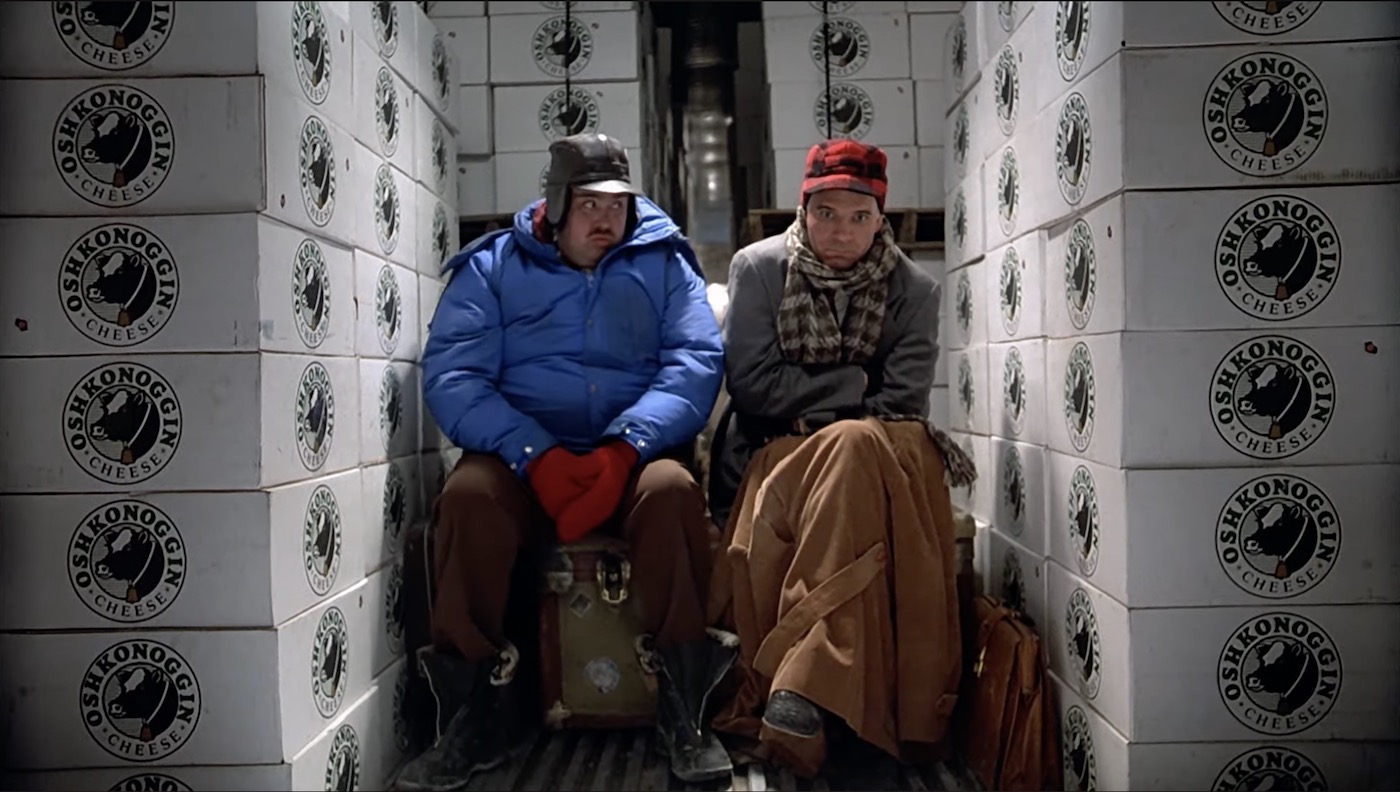
When I showed up for John Hughes’ buddy-comedy/road-movie Planes, Trains and Automobiles ...
I was ready to get my 99-cents’ worth of the Steve Martin whose “Wild and Crazy Guy” and “Let’s Get Small” standup routines I had memorized, and whose idiot protagonist in Carl Reiner’s joyously absurd The Jerk (1979) had made me laugh over and over again. This was in 1987. I had just turned 17 and was reveling in my new freedom to meet friends after school at Village Theater, the 99-cent double-feature cinemas in my neighborhood. These were formative adventures: The children we have been start morphing into the adults we will become on those late-teen adventures, and while many boys my age were looking to athletes and pop stars and Hollywood icons of masculinity as role models, I was drawn to the personalities and screen presence of Steve Martin and David Letterman, sensing promise and possibility in how they had turned eccentricity into confidence and crowd-pleasing. When they met up for outrageous antics on Letterman’s Late Night show, I had an epiphany: I didn’t just think they were funny — I wanted to be both of them. 35 years later, I still catch myself quoting and imitating one or both of them almost daily, even in something as fleeting as a facial expression.
The previous December, John Landis’s comedy Three Amigos! had split its attention three ways between Steve Martin, Chevy Chase, and Martin Short. Their chemistry was inspired, but I remember being a bit disappointed that Martin Short’s manic flamboyance had made Martin seem almost like a straight man. But then, in June of ‘87, Steve Martin gave himself the most ambitious and satisfying exhibition of his range and talents in his very own adaptation of Cyrano de Bergerac — Roxanne (directed by Fred Shepisi), and he earned rave reviews across American media. He was funny, he was uninhibited, he was smart, and — this made quite an impression — he could write. I was thrilled to think that this all but guaranteed many years of onscreen outrageousness from the Master of Absurdity for Grown-Ups, and, what is more, a level of respect from discerning adults that justified my wanting to be like him.
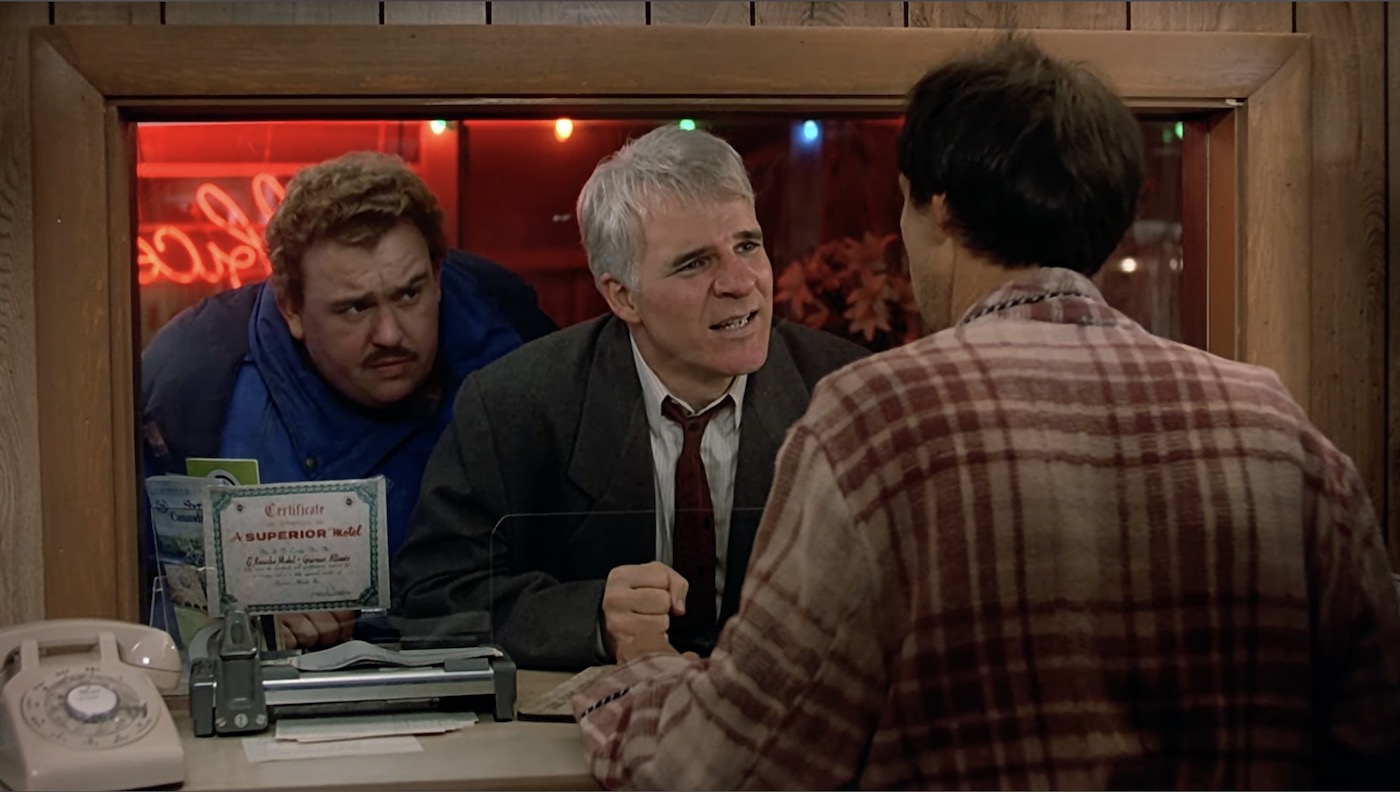
What I didn’t realize was that the wild and crazy Steve Martin I loved so much was already mellowing into a more restrained, more sophisticated mode of comedy — something more like Woody Allen or Albert Brooks. In Roxanne, he had expanded his performance to play a few notes of deep melancholy, passionate romance, and philosophical introspection, among the anticipated bursts that made my favorite arrow-through-the-head maniac recognizable behind that spectacular prosthetic nose. I didn’t anticipate, and would not have been pleased to learn, that these inclinations toward seriousness would mark the direction he would go in the next decade of his career.
So it was disorienting when, in Planes, Trains and Automobiles, I was introduced to Steve Martin the Straight Man. Oh, sure — anybody who’s seen the movie can point to a few memorable occasions in which his character explodes into his signature histrionics — this time in fits of hilarious rage. But those moments build up over long sequences of scowling, simmering, and slow-cooker cantankerousness. Playing the part of Neal Page, Martin seems intent on convincing us that he can play a normal guy, and might even actually be one. Neal’s an advertising agent in a suit with a briefcase, and he just wants to get home to his pretty wife and his picture-perfect kids. The obstacles in his path become the challenges, then, that start breaking down Neal the Family Man who does not interest us and threatening to release Neal the Monster — the freakshow we’ve really come to see.
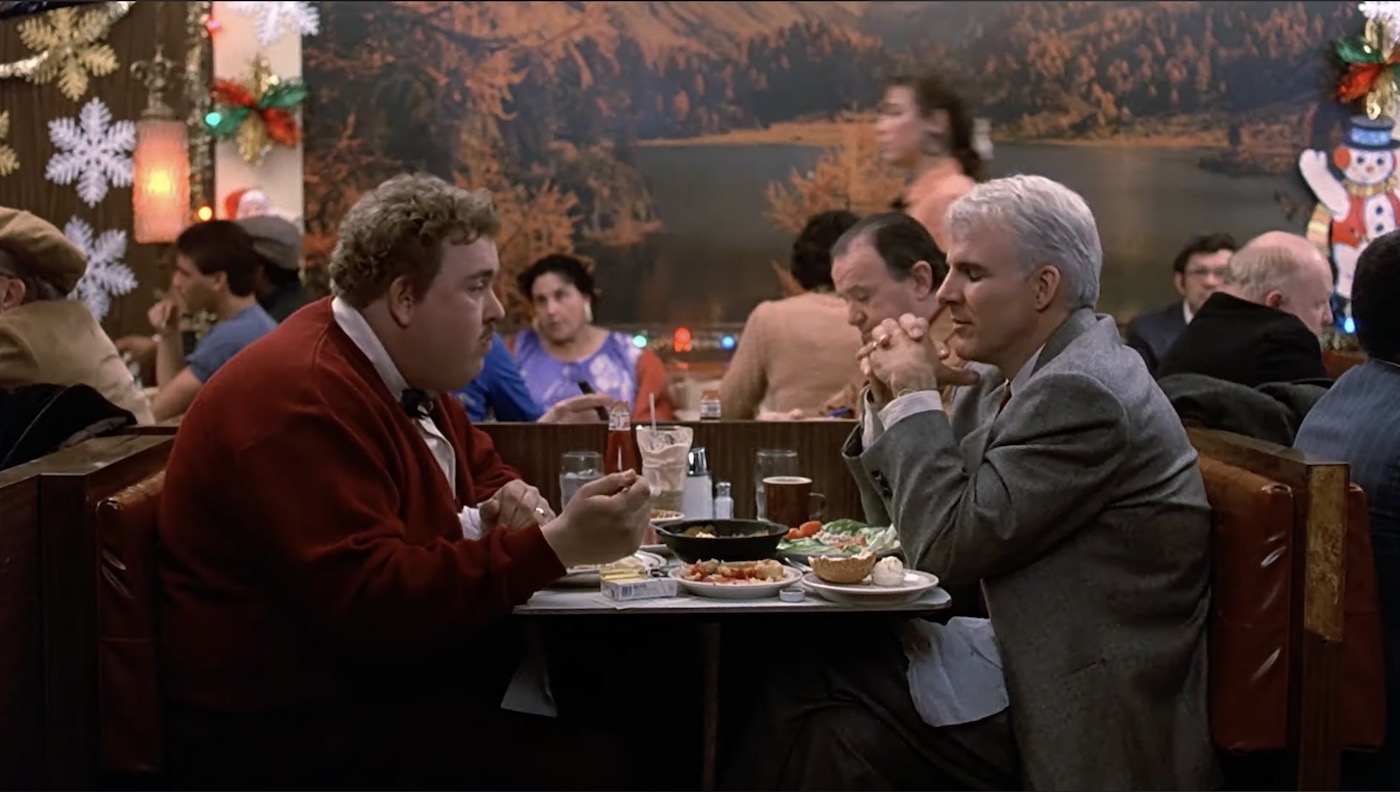
What I hadn’t come to see, and what I got instead of the Wild and Crazy Guy, was a performance from another actor that remains the most rewarding aspect of Planes, Trains and Automobiles. As Steve Martin’s Neal deals with one setback after another in his quest to get home — an obstacle course that may have been the template for Midnight Run with Robert De Niro and Charles Grodin two years later — he is forced to deal with John Candy’s Del Griffith, a traveling salesman whose girth is like a physical representation of his off-putting gregariousness. Played by Candy at the very peak of his formidable powers, Del is the kind of guy who, in your worst nightmare, you’re stuck sitting beside on a crowded flight for six hours. His cringe-worthy jokes, his obnoxious behavior (removing socks and shoes on the flight to massage his smelly feet), his flagrant recklessness (driving without ever looking at the road): these things are enough to drive anyone over the edge, or, in this case, directly into oncoming traffic. And if you think that sounds bad, wait until you see what Neal has to deal with when he and Del are forced to share a hotel room.
My frustrations at the lack of seeing what I’d paid to see — Steve Martin unchained and unhinged — slowly subsided as I reflected on the film and realized that Neal was naming something in me: a weakness that still afflicts me to this day. He was holding up a mirror to a combination of self-interest, impatience, and ungraciousness that can take a toxic hold on our hearts as we move about our days in bubbles of our own making and insulate ourselves against encounters with our neighbors that might ask us to living more humbly, more generously. Every single time we see Del Griffith being Del Griffith, we in the audience feel trapped in a prison cell with Neal. And Steve Martin makes Neal someone we can relate to, someone trying to maintain his composure as his boundaries are challenged. Even better, he’s someone who allows us to vicariously experience what it’s like to unleash our bottled up frustration. There’s something cathartic in watching Neal’s volcanic eruptions when Del pushes him too far. We laugh because we have all been trapped in those situations — those planes, those trains, those cars — and we’ve all wished we had permission to lash out.

And that’s when this simple comedy, which often goes for the easiest joke, and is designed to appeal to large audiences without asking too much of them, sneaks up on us with something truly valuable: In the aforementioned hotel room scene, Hughes writes a scene for Neal that lets his glorious temper tantrum run a little too long. We’re laughing, but that laughter becomes complicated because the camera stares unflinchingly at Neal’s rage to a point that we wonder when he’s going to stop. When Neal stops to take a breath, his face contorted in contempt, Hughes then directs the camera’s attention — and, thus, ours — to the expansive canvas of Del’s unfiltered expression. He’s an open wound. And we cannot look away. There’s no doubt about what Del is feeling. He is suddenly revealed as a three-dimensional human being, one teetering on the precipice of an abyss that has been carved deep by loneliness and suffering. What’s more, Del reveals that he is more complicated than just a victim: On the path of his hardships and failures, he has experienced grace. The true love of his wife Marie has given him something to hold onto in those hard moments.
Thus, the obvious flaws in Del’s character become like a magnet for drawing out and exposing the flaws in Neal’s character. And the revelation of Neal’s ugliness enables us to glimpse goodness in Del. A new question emerges: If Del is capable of demonstrating strength in the face of hardship, what about Neal? Who is the bigger problem in this picture?
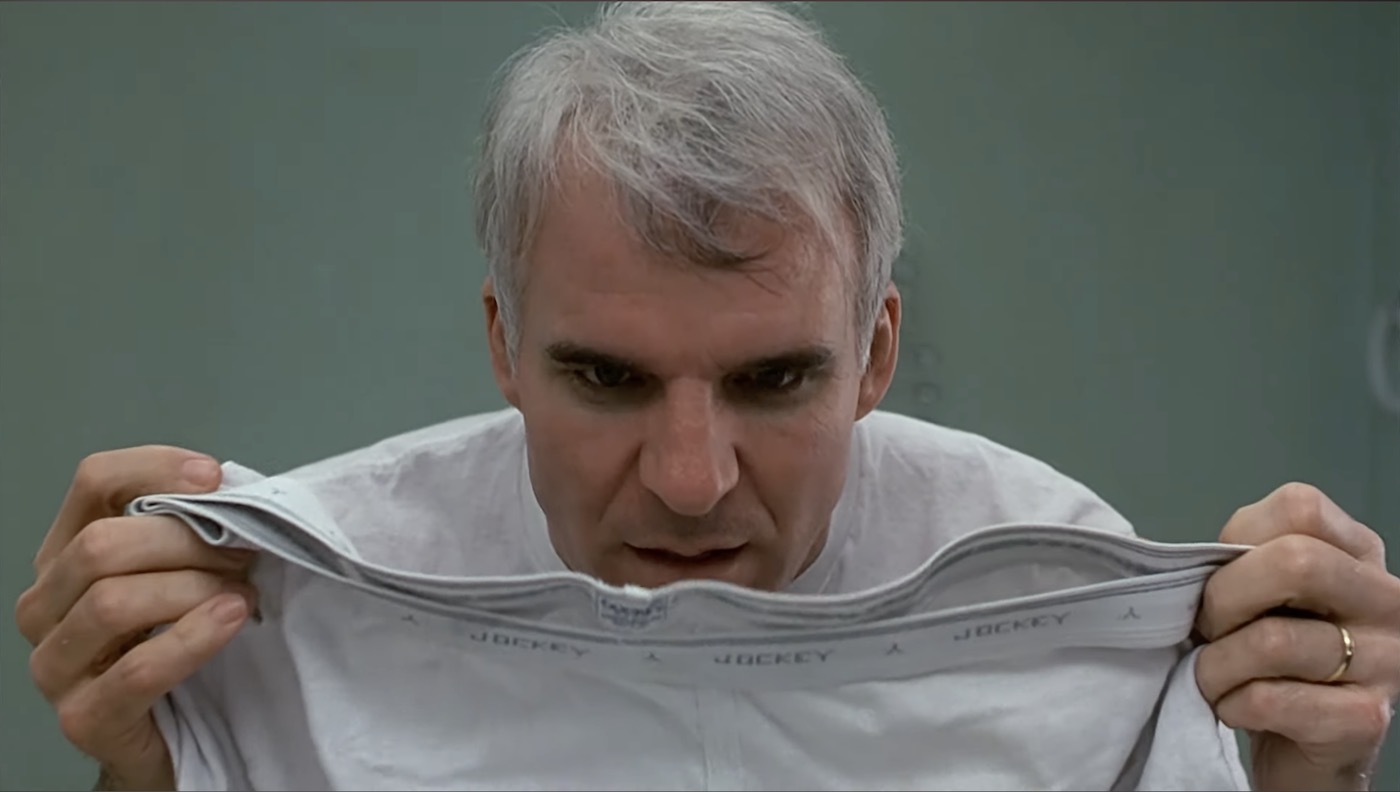
Hughes, as the wise and clever god of their world, devises circumstances in which these two will be forced to reckon with those weaknesses and become more fully human in each other’s company. At the same time, our initial annoyance with, laughter at, and mockery of Del exposes in us a lack that alarms us when we see it in Neal. If we’ve grown up as a target of bullying or been scarred by other traumas like those that Del eventually reveals, perhaps we find points of connection with him as well.
Here’s a movie that, while unapologetic in its mainstream crowd-pleasing and its broad-stroke storytelling, still fulfills what Roger Ebert so famously defined as the most significant promise of cinema: it “generates empathy.”
Making this predictable and popular choice to watch over the Christmas holiday break from school here in 2022, I’m surprised by how much affection I still have for this movie, scene after scene. Yes, there are jokes that haven’t aged well and that demonstrate that artists and audiences alike have become wiser and more compassionate. But overall, it remains as solid as any mainstream-crowd-pleaser comedy the '80s ever produced. I haven't seen it in at least 15 years, and yet I find myself reciting every line like I've been watching it once a month since it opened.
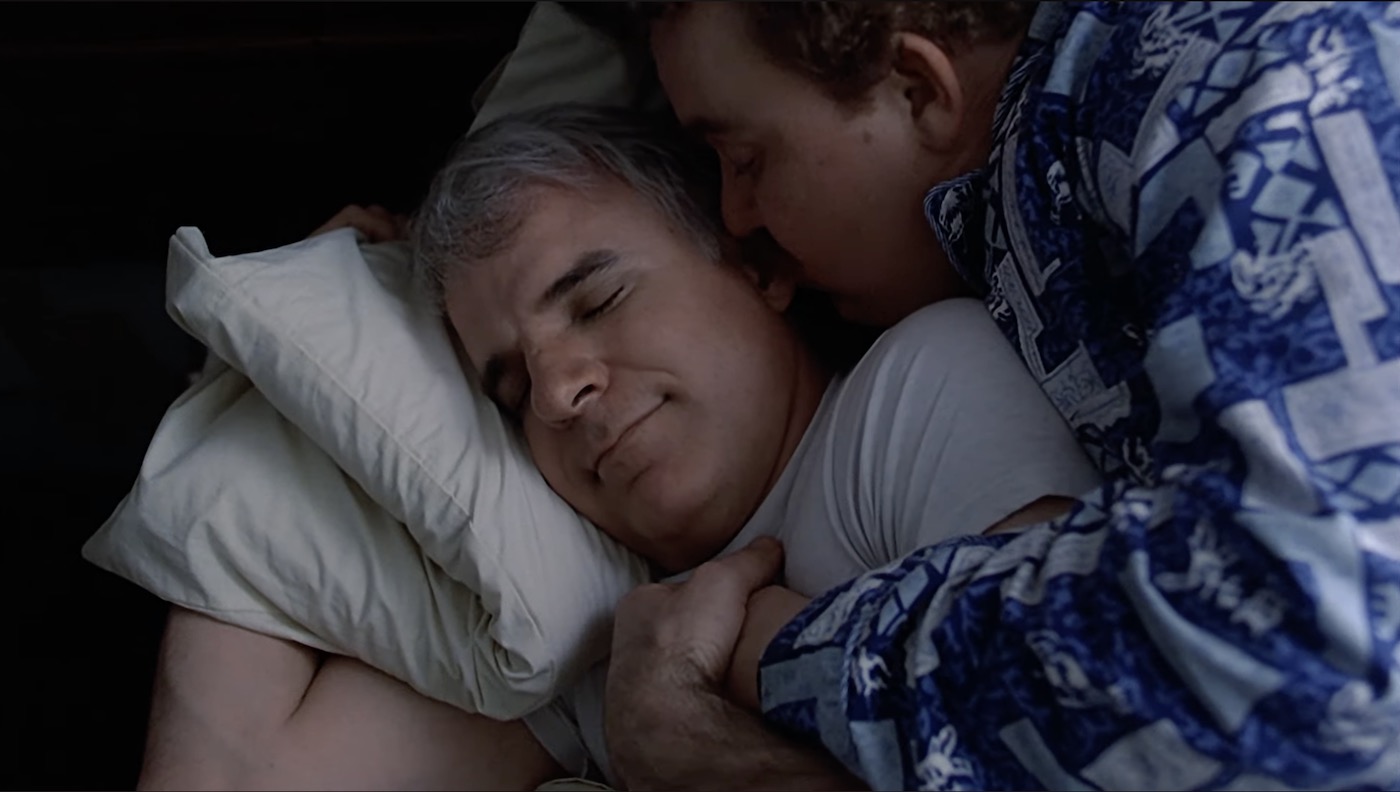
I also find it sobering how badly audiences need movies like this now — and how important it is for us to talk about them afterward. The kinds of lashing out that we see in Neal’s meltdowns — the heartless sneering and hateful ranting — seemed so obviously horrible to me as a teenager in the ‘80s. But now I recognize in Neal’s tantrums, which reveal the diseased condition of his heart, qualities that are celebrated and promoted in American politics. “Leaders” who spew wrath and hatred like Neal’s into microphones from campaign platforms are now rewarded for championing a lack of empathy. This is a strategy for cultivating a culture of cruelty, division, and ultimately self-destruction. The golden rule, the Gospel of “Love your neighbor as yourself” — these things are now dismissed as pathetic, the ethics of weakness, not strengths.
I hope Planes, Trains and Automobiles will continue to be treated as a “holiday classic.” Where I once looked at it as a fun but slight entertainment, I now see it as necessary a story for the big screen as A Christmas Carol, one that, thanks to the starkly defined caricatures provided by Straight Man Steve Martin and Butt-of-the-Jokes John Candy, offers us both a hard diagnosis for what ails us and a glimpse of a possible cure.
A conversation with Frederick Buechner in my quiet, snowbound house
Here’s a conversation* I had with the dear (and now departed) Reverend Frederick Buechner just a couple of days before Christmas on a morning when our neighborhood was blanketed with several inches of snow.
Overstreet:
I am having trouble finding a sense of peace and quiet this Christmas. I am surrounded by crises. It’s hard to sit still and read a book. It’s hard to feel that writing — writing fiction, writing about art — is worthwhile. It’s hard to pray. The nation’s future teeters on the precipice, and half of the country seems inclined to shove it over into the abyss of authoritarianism. The university where I work is crumbling due to poor leadership and the consequences of cruel, discriminatory hiring policies. The vast majority of my colleagues — the faculty, staff, and students —are pleading with them to change their policies and try to save their own school, but our appeals fall on deaf ears and hard hearts. A close friend just told me that she has been diagnosed with an aggressive form of cancer. A family close to mine lost their daughter to a stroke this very morning, right before Christmas. I am trying to hear the voice of God in all of this. What I’m afraid I’ll get, if I share these things, is a blast of cheap platitudes and clichés. I don’t think I can bear it if I hear another Christian, even a well-meaning one, say “All things work together for good,” or “God loves you and has a wonderful plan for your life.”
“What deadens us most to God's presence within us, I think, is the inner dialogue that we are continuously engaged in with ourselves, the endless chatter of human thought.”
O:
Is that your way of saying I should turn off my phone? Take a social media break? Spend more time praying?
“I suspect that there is nothing more crucial to true spiritual comfort, as the huge monk in cloth of gold put it, than being able from time to time to stop that chatter including the chatter of spoken prayer. If we choose to seek the silence of the holy place, or to open ourselves to its seeking, I think there is no surer way than by keeping silent.”
O:
Normally at this time of year, I’m scrambling to catch up with all of the big movies I’ve missed, but this year so many of them are loud, chaotic, full of frantic battle scenes. This year, while I’ve watched some of them, my heart isn’t in it. My spirit is too worn down by the troubles around me for me to get quiet, open myself to art, and receive another heavy testimony of suffering. Perhaps that’s why I find myself more drawn to books of devotional mediations like yours, or even to contemplative cinema. The cinema is, in fact, one of the only places anymore where I find I can “get out of my own head.” For one thing, while the screen is illuminated, the surroundings are dark and I am not distracted by others. For another thing, I’m required to turn off my devices. I am there to pay attention to one thing, not a dozen things. But its hard to find somewhere that provides a reliable quiet.
“God knows I am no good at it, but I keep trying, and once or twice I have been lucky, graced. I have been conscious but not conscious of anything, not even of myself. I have been surrounded by the whiteness of snow. I have heard a stillness that encloses all sounds stilled the way whiteness encloses all colors stilled, the way wordlessness encloses all words stilled. I have sensed the presence of a presence. I have felt a promise promised.”
O:
As you can see, we’re snowbound here today. But we live on a very busy main road. In some ways, the snow makes things louder. Emergency vehicles are screaming past. People are braking and skidding, leaning on their horns. Maybe I should wrap up in my warmest winter clothes and go to the park. I need to find some of these moments you’re describing. I’ve experienced them, but it seems like it’s been many years.
“I like to believe that once or twice, at times like those, I have bumbled my way into at least the outermost suburbs of the Truth that can never be told but only come upon, that can never be proved but only lived for and loved.”
*Buechner’s lines come from his book Telling Secrets. They are also included in the “Daily Meditations” collection, marked for December 23 — appropriate words for a snowy pre-Christmas morning.
Overstreet Archives: The Muppet Christmas Carol (1992)
Ten years ago, in 2012, I began a very short-lived gig as a reviewer for Reel Spirituality at Fuller's Brehm Center. It began with a 20th anniversary reflection on The Muppet Christmas Carol.
So, that makes this month the film's 30th anniversary! And since my review seems to have disappeared from Fuller's website — perhaps it was just too Scrooge-y? — I'm reviving it here, just for the record.
And, by the way, I watched the film again tonight and found that my opinion of it hasn't much changed over the last decade... although I must say that even the simplest expression of goodness like this one seems to pack more punch in these dark days. I just wish the filmmakers hadn't seemed so intent on erasing any evidence that this is a sacred holiday, one inseparably bound up in the story of the Christ child, so that it just becomes a celebration of spontaneously generated goodwill.
Anyway — here's the piece I wrote in 2012 about a "holiday classic" released twenty years before that.
Once upon a time,
when Jim Henson’s Muppets were a prime-time television sensation, families tuned in to whimsical, heart-warming Muppet Christmas specials. That was a long time ago. Since Jim Henson’s death in 1990, the Muppets have struggled to maintain household-name recognition, their occasional feature films (mediocre at best) failing to halt their descent into the annals of nostalgia.
Then Disney surprised everybody in 2011 by reviving Kermit the Frog and company with brilliant viral video campaigns and a movie called The Muppets that was better than Muppet fans had any right to expect. The original cast of multi-colored, multi-species characters seemed to have revived their original personalities and their spirit of goodwill spiced with anarchy (if not their original voices). Grown men and women cried, and many children were given an introduction to a world of rewarding entertainment.
So it’s likely that a lot of families began working backwards this year, schooling their kids on The Muppet Show and past Muppet movies.
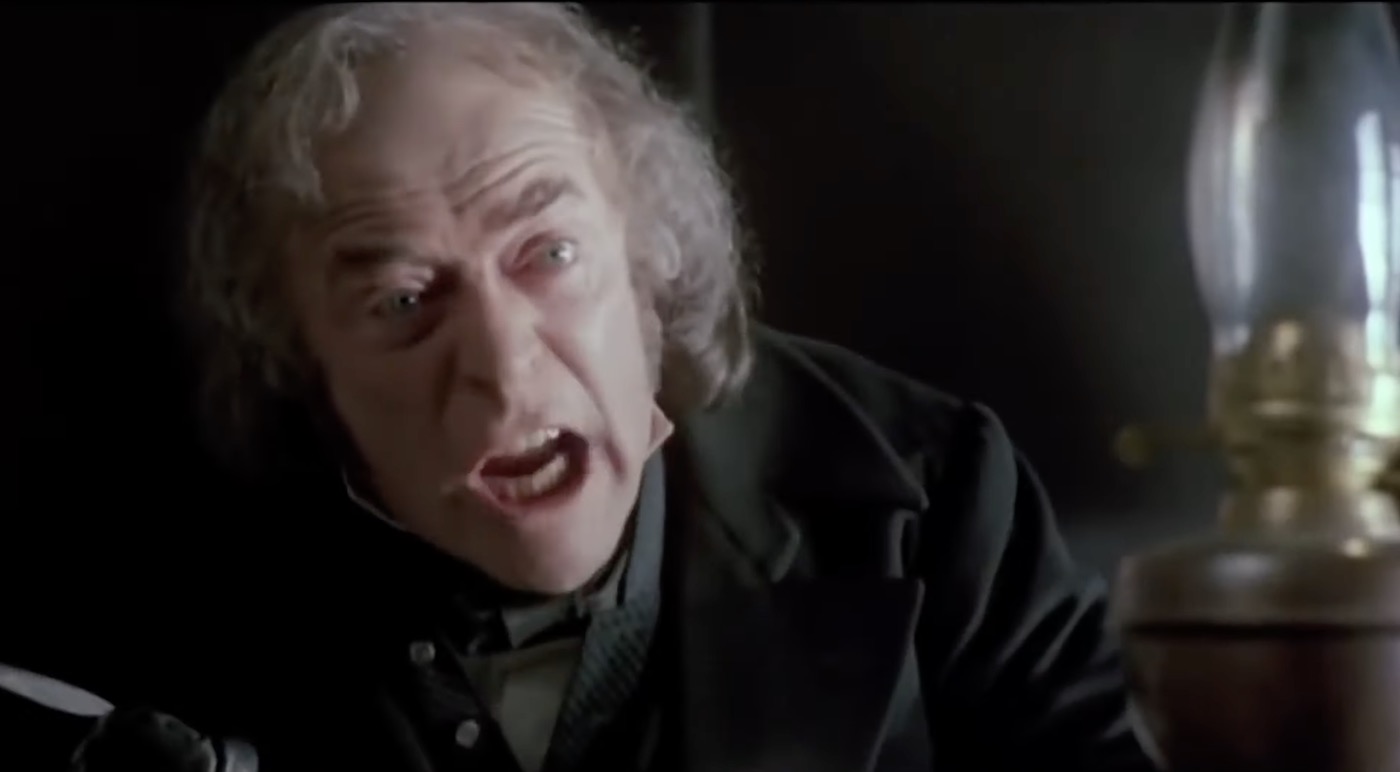
This Christmas is the perfect time to revisit 1992’s The Muppet Christmas Carol, now available in a restored edition on blu-ray and DVD labeled as the “It’s Not Easy Being Scrooge Special Edition.” It’s about as faithful an adaptation of Charles Dickens’ classic story as the Muppets could make in the midst of their typical mischief.
This was the company’s first big production since Henson’s death. They created a wonderful Muppet-world equivalent of Victorian England, the cobblestones, the windows, and the rooftops all busy with activity. Nevertheless, fans could feel that something was missing. The regular cast of characters seemed to have lost their personalities.
Gonzo the Great plays the narrator – Charles Dickens himself – and Rizzo the Rat’s his wacky sidekick. But it doesn’t suit Gonzo to play the straight man. He’s always been an agent of chaos. Rizzo’s a lousy substitute, straining for laughs with mishaps and pratfalls.
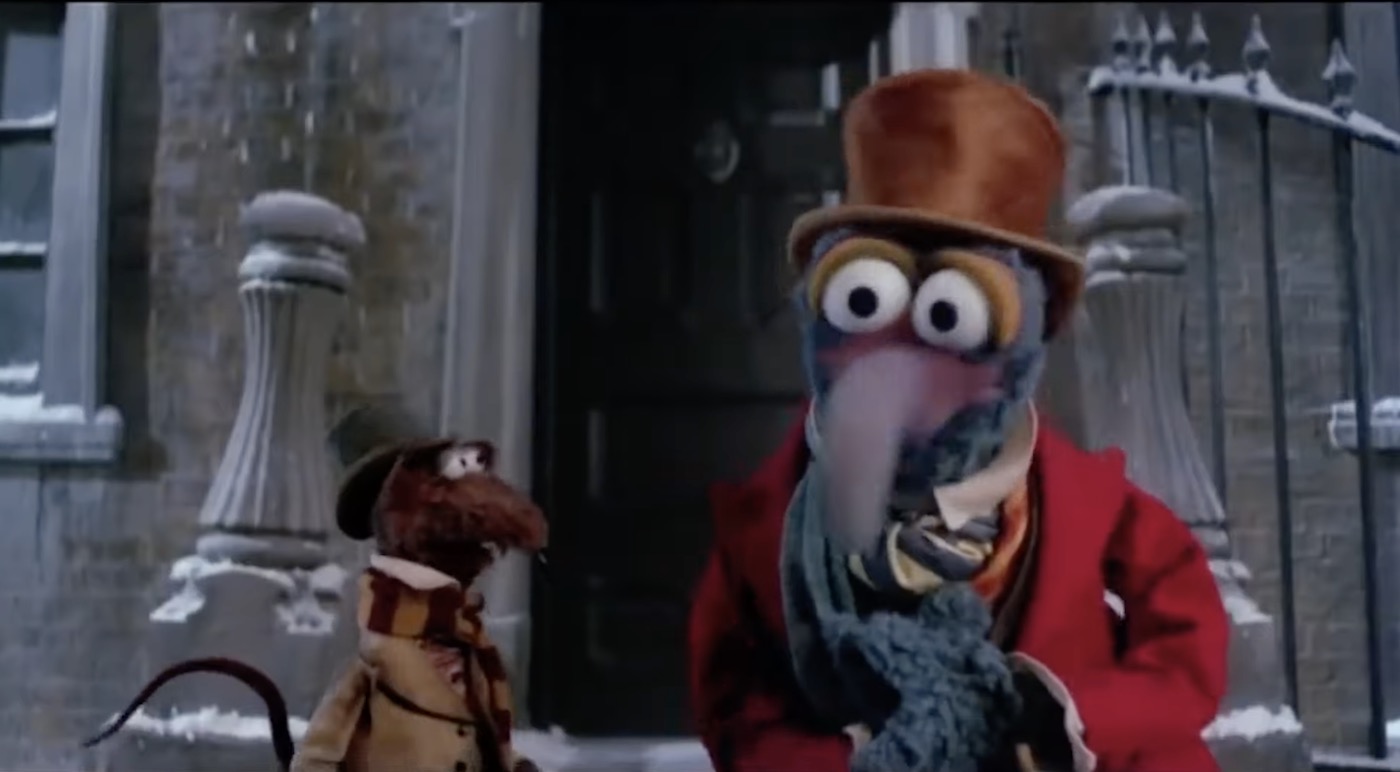
Muppet screenwriter Jerry Juhl made Kermit a secondary character here – a wise decision, since it prevents us from getting distracted by the fact that Steve Whitmire is doing his best fill Jim Henson’s shoes (or, in this case, his sock puppet). Meanwhile, Frank Oz is reliable in small roles as Emily Cratchit (Miss Piggy) and Fozziwig (Fozzie Bear). Still, a Muppet movie in which Kermit and Fozzie aren’t at the center is like an episode of 30 Rock with only brief glimpses of Tina Fey and Alec Baldwin.
Dickens’ famous spirits are something of a disappointment here. The cherubic Spirit of Christmas Past looks like a lazy leftover from The Dark Crystal. The gigantic Spirit of Christmas Present is so overly jovial, he might make anybody a Scrooge. And the Spirit of Christmas Future is a typical hooded death figure, creepy but unimaginative.
Most disappointing of all, Paul Williams – the brilliant songwriter who gave us “The Rainbow Connection” – unloads one Christmas cliché after another in forced rhymes and uninspiring melodies. There’s nothing of Christmas mystery in this music, and faith is mentioned in only the most generic of ways. (What is faith for a Muppet anyway? Belief in puppeteers?)
But director Brian Henson, Jim’s son, does have some inspired ideas – like casting the Muppet’s steadfast critics Statler and Waldorf as “Marley and Marley,” come to criticize Ebenezer Scrooge in a memorably spooky musical number.
He also casts Michael Caine as Ebenezer Scrooge. Normally, Scrooge is the big, showy role in A Christmas Carol. And it’s typical for celebrities to ham it up around Muppets. But Caine wisely gives us an understated, soft-spoken Scrooge. He accepts his costars as comfortably as if they were extras on Masterpiece Theater. In the midst of a Muppet hubbub, he’s the storm’s calm center.
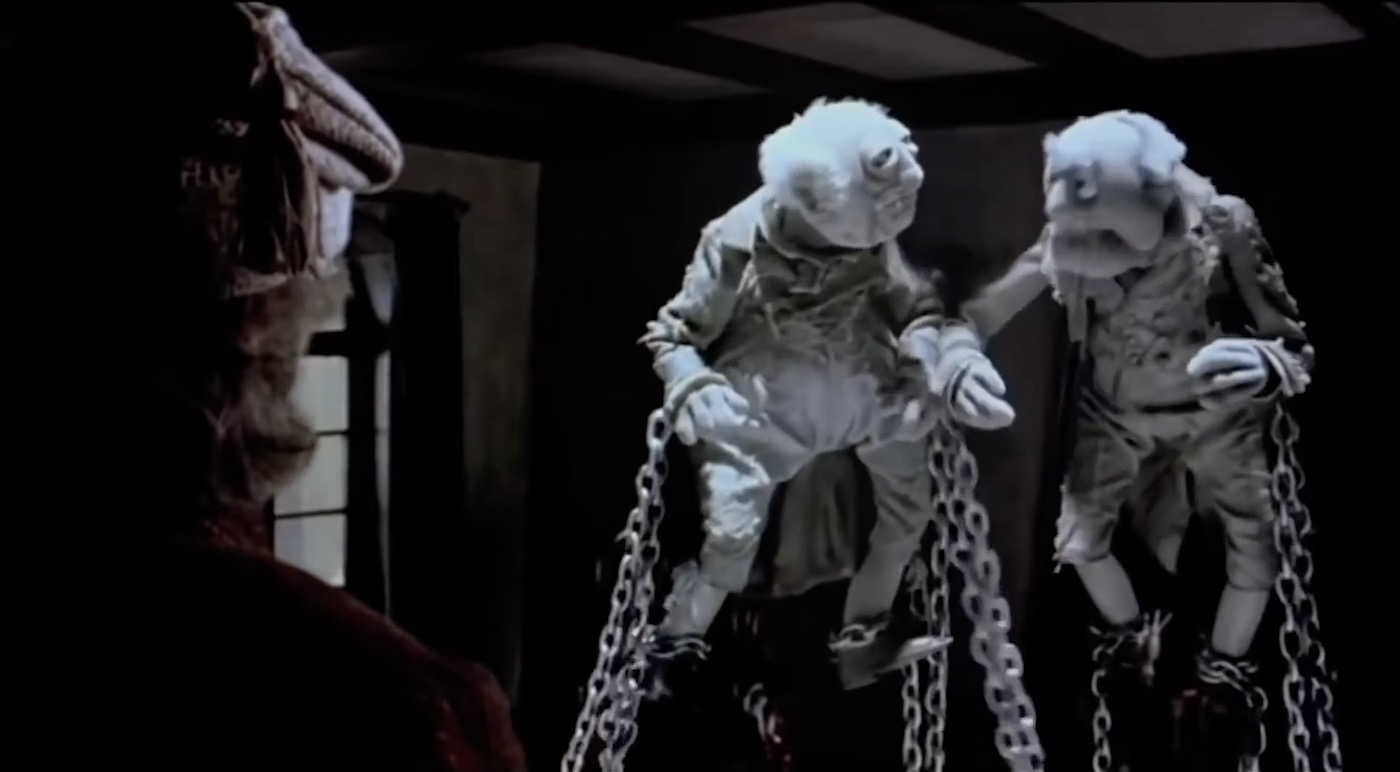
This new edition comes with extras that are as funny as anything in the movie, offering visits from caroling chickens any time you hit the “Pause” button. And Brian Henson offers notes on a commentary track.
The Muppet Christmas Carol would a poor way to introduce an audience to the Muppets, but it’s not a bad way to introduce young Muppet fans to Dickens’ story. Plenty of the classic parable’s power is preserved here. And in view of recent unrest among “the 99%”, this cautionary tale about the self-destructive nature of greed seems especially relevant.
And if the Muppets are missing their spark, who can blame them? Their captain had departed so abruptly, a tragedy for a community of wild imaginations. What Brian Henson’s movie does well – the ambitious handmade spectacle, the colorful characters, the wholesome quality of the storytelling – is a tribute to his father’s high standards. Where it falters, it’s just further evidence of Jim’s irreplaceable personality and charisma.
Still, for big Christmas fun, this lifelong Muppet enthusiast would recommend that families revisit the original – 1979’s The Muppet Movie – instead. It’s playing on Netflix Instant, and a blu-ray edition is coming right up. It’s full of inspired comedy, guest stars, and classic songwriting, powered by Henson’s big beating heart. And as two of the film’s most important moments involve humble characters looking heavenward for inspiration and guidance, it seems perfectly appropriate – even poignant – to share during the holiday season.
The Wonder (2022)
How can a girl stop eating for months at a time with no apparent change in her health? Is God bringing about a miracle? Or is this religious community conspiring to fool us all?
The Wonder, the new film from director Sebastian Lelio (adapted from Emma Donoghue's celebrated novel), takes place within an idiosyncratic Irish Catholic community. (Is there any close-knit community that isn't idiosyncratic?) Their closeness has been forged, in part, by the the ongoing consequences of the famous 1840s famine that cost so many Irish lives two decades earlier. But now, a nine-year-old named Anna (Kila Lord Cassidy) in their midst seems to have been touched by God and she is now able to survive without food. The story is about what happens when these excited believers are threatened by an outsider, a nurse (played with luminous intensity by Florence Pugh), who suspects that this seeming "miracle" might in fact be a conspiracy and perhaps even one involving child abuse.
To some, The Wonder will seem a straightforward story of a clash between religion and science. But it's much more than that. It's also about how religious traditions, even those that provide the most meaning and inspire the most goodness in the world, can go wrong. When fear or vanity take root within a faith community, religion can mutate from a humble vocabulary of faith into legalistic fundamentalism; from freedom into oppression; from a union of intellect and conscience into a denial of both; from the cultivation of love into the perpetuation of harm. It's about how what we choose to believe and how we choose to express that belief can make us either generous and gracious or self-serving and destructive.
As a writer who lives in the challenging zone where belief in God and confidence in academic inquiry co-exist, I care about such stories very much. In order to illustrate why I find The Wonder so compelling, I'll share an account of my recent encounter with a stranger, one who challenged my own religious beliefs with the sharp edges of his intellect.
Actually, a lot of things happened that morning. But this is what storytellers do when they tell "true stories": We select amplify certain details. We minimize others. We erase some altogether. We rely upon our memories, notions which are not entirely trustworthy. We align our curated specifics in a coherent way to take readers on a journey, a path to glimpses of a larger idea. Yes, even nonfiction is fiction. When we tell a true story, it is still a construction, an art made of available materials. Nonfiction is full of creative storytelling strategies.
This is important. The Wonder begins with a narrator who reminds us that everything depends on the stories we tell ourselves about the world, the stories we construct and choose to believe in.
So before I get to my particular review of The Wonder, I'll tell you how this encounter took place.
On that chilly December morning...
...as I leaned over a cafe table revising my syllabus for next quarter's Fiction Writing class, a man at another table — I'll call him "Saul" — waved at me and pointed at the stickers decorating my MacBook. Since I apply stickers in hopes they'll spark conversations, I removed my headphones and suspended my work. The sticker in question? It's a portrait of Yaphet Kotto, an actor known for his commanding presence in television's Homicide: Life on the Street, the 1988 chase movie Midnight Run, and the sci-fi landmark Alien. Saul was familiar with Alien, and soon we were swapping stories about the most disturbing films we'd ever seen. I happened to mention (as I often do) that the community I grew up in tended to condemn movies as "corrupting and worldly influences."
"You must be a 'recovering Christian," Saul snarked with a knowing smile.
I laughed. "Yes and no."
"But you left all of that toxic religion behind," he said, eager for me to affirm this.
We shared an uncomfortable silence as I weighed my response. I knew that I was being tested. I had stumbled unwittingly into a conversational minefield, and I needed to step carefully. This inquisitive stranger seemed eager for me to join him in lamenting the awfulness of Christianity.
"No," I finally admitted. "No, not really. But let me explain what I mean: I don't subscribe to the cultural Christianity prevalent in America. That's a religion that prioritizes nationalism, white supremacy, and a very selective and self-serving moralism. But I do believe in Jesus — what he teaches, what he does. I believe Jesus is a revelation that God is Love, and that anything contrary to that Love is not God. So, yes I am 'recovering' — but I'm recovering from distortions of Christianity, not from the Gospel itself."
It was like I had lit a match and tossed it into a barrel of kerosene.
My new friend was visibly aggravated. He began accusing me of "endorsing" and "promoting" a religion that is responsible for many of the most heinous crimes against humanity throughout history. And much of what he said can be easily supported with evidence from the Scriptures: "The Bible endorses slavery." "The Bible has passages telling men to beat their wives." "The Bible is full of some of the most horrible things human beings have ever believed." His litany of complaints became more aggressive and more personal. "If you're a Christian, then you believe the Bible. And if you believe the Bible, then you worship a god who commands us to do these things. Christianity is a rapist's religion."
How does one respond to such challenges in a crowded cafe?
In this corner, we have a man who believes that Christianity it a toxic influence in the world. And in this corner, it's me: a man who embraces Christianity as a path into "the Way, the Truth, and the Life." How can two people like me and Saul hope to have a meaningful conversation and find our way to a peaceful resolution?
A similarly heated confrontation is the crux of the conflict in The Wonder.
Anna's family is attracting attention. Her family claims she's on in the fourth month of a fast from all food, and yet she shows no sign of deterioration. She claims, rather, to be living on a diet of "manna from heaven." Her mother (played by Elaine Cassidy, Kila's real mother) swears her daughter is telling the truth. And thus, Anna's fame is growing. Some are even murmuring about the possibility of sainthood.
So a council of men (you may recognize veteran actors Toby Jones, Ciaran Hinds, and Brian F. O’Byrne) has decided to put matters to the test. They want to be able to say they've done their due diligence and investigated the matter thoroughly. They aim to determine whether or not Anna's survival is a sign from God or some sort of trick. So, sitting solemnly behind a long table, they interview two visitors who they have asked to watch Anna vigilantly: a nun and an English nurse.
But more and more believers are coming to Anna's house, eager to see what they believe is a miracle. Is Lib an enemy of faith, sent by the devil to sow doubt and division? Or is she, in her quest for understanding, an agent of love and wisdom?
Lib Wright is a woman aptly named.
She is a free thinker ("Lib") and she is convinced that she is... right. Jaw set, eyes blazing, she marches into what she suspects is a conspiracy determined to catch Anna and her family in whatever trick they're performing. She won't be easily swayed to the idea that God is at work her. She's lost too much — a child, a husband, and more. And so she's a bloodhound for truth, even if that truth is too painful for anyone else to face.
And yet, while Lib takes her detective work seriously, she refuses to jump to any conclusions. Thus, William, a brusque and pushy journalist (played by Tom Burke), finds he cannot easily persuade Lib to conclude that Anna is simply "an actress." In fact, his commitment to covering Anna's case suggests that he might be harboring deeper questions about the mystery himself. After all, both he and Lib have deep scars in their recent history, scars that amplify their desire to know the truth even as they become fiercely committed to this child's well-being.
And so, Anna is caught in the middle — like the infant child torn between two possible mothers in the courts of King Solomon. Should she be trusted? How much of her self-knowledge has been shaped by her zealous Christian community? How differently might she understand the circumstances if she were to prioritize reason, as Lib does? Which perspective reveals the truth? Which plan of action is more loving?
Everyone involved here believes they're doing the right thing. Anna's community see those who would disbelieve Anna as enemies of God. Lib believes that anyone who prioritizes religious speculation over the child's heath and survival is dangerous and deluded. Some act as if those who threaten their traditional values are unfaithful to God. But Lib believes in loving and serving the patient in front of her first, even if it means separating Anna from her family in order to observe her more closely.
The stage is set for violence of one kind or another. Either the community will tear Anna away from Lib in order to protect their notion that God is performing a miracle through Anna, or Lib will isolate Anna for rigorous observation to find a reasonable explanation. Either outcome endangers Anna.
Which way is the purer demonstration of love?
The Wonder may not stand up alongside the greatest cinematic works of religious art. But then again, it might.
Only time will tell, as we return to it again and again and delve deeper into conversation.
Cinematographer Ari Wegner (who also shot Jane Campion's The Power of the Dog) gives us an 1800s Ireland of muted colors — grey, black, blue, lavender — that accentuate the starkness and coldness of the spiritual landscape, amplifying desperation and hardship. I am not enthralled by the composition of the film's imagery — like most literary adaptations, the film works as an elegantly illustrated version of an abridged text.
Thus, I wouldn't rate it alongside films like those of Robert Bresson, Carl Theodor Dreyer, Ingmar Bergman, or Terrence Malick on such subjects. I think it's probably best considered in relationship to other, more "accessible," more mainstream films about faith and doubt, faith and science, "Good Religion" and "Bad Religion." I'm thinking of films like John Patrick Shanley's Doubt, Scott Derrickson's The Exorcism of Emily Rose, or even Verga Farmiga's Higher Ground, all of which are compelling and rewarding in ways that welcome large audiences without alienating viewers who aren't as adept in navigating the demands of poetry. It also reminds me of Babette's Feastin how it shows us a community in crisis, suffering the consequences of its own religious fundamentalism, and how they respond when an outsider with a more expansive philosophy brings new and threatening ideas into their community.
What I admire most about the filmmaking here is Pugh's riveting performance. It's a joy to watch this young actress of such tremendous gifts, pushing herself to greater and greater achievements in films beyond her disposable mainstream contributions like the episodic MCU stuff (Black Widow), "arthouse" fare that thrives on sensationalism and audacity (like Midsommar), or other "arthouse" fare boosted by lurid backstage drama and gossip (Don't Worry Darling). This is, in my opinion, the best work she's done since Greta Gerwig's Little Women. Pugh is so good here that while she is the film's greatest strength, she highlights one of its weaknesses — the fact that so many great actors are present here filling forgettable roles as poorly developed secondary characters. (What is Ciarian Hinds doing here in such a thankless role?)
The certainty of those who believe Anna's health is a meaningful miracle is shaken when Lib requires that Anna be separated from her family. They interpret this as cruelty, and based on the way Anna suffers from the separation, it's hard to deny their objections. What should Lib do? who claim they are following God in this film is leading to excruciating suffering in the body, mind, and soul of a young girl. The woman who comes to their aid, and who does not claim to be religious, she believes in applying her intellect to the case of the suffering girl in the hopes of saving her life. And it is clear that she loves the girl, and will do whatever she can to save the girl.
And so we the audience are challenged. If God is Love, that raises a difficult question: Who here is showing the fullest measure of love for the suffering girl? Who here is really serving God? Isn't this a perfect circumstance to ask "What would Jesus do?"
I suspect I know what most viewers will think of this movie.
I suspect that those who hate Christianity based on the horrors they have seen human beings commit in Jesus' name, horrors that have been defended with Scriptures taken out of context, will nod and point to The Wonder as a story about how religion ruins the world.
But I look at it and see good examples of how religious communities can misunderstand and then misapply the Scriptures. I also see good examples of people who are loving their neighbors (and, thus, loving God) at great cost to themselves.
Here is one of those stories in which the "religious" community has corrupted the vocabulary of the Gospel. And it is a figure from the outside, one not perceived as "religious," who actually embodies True Religion. Nurse Wright reflects (inadvertently, I suppose) the ministry of Christ in the world. She embodies a marriage of intellect and heart for the sake of Love and Love above all, thus becoming an icon of the Savior in spite of herself — both a Marian figure, in her willingness to play a maternal role that opens her heart to harm, and (before it's over) a Christ figure, complete with wounded hands — seeking to love, heal, absolve, and, yes, save one lost lamb from distortions and curses before it's too late.
And this brings me back to the Monday confrontation, and how I decided to answer my challenger.
In this situation, I found myself in the uncomfortable position of having been categorized as a religious fanatic, challenged by a "reasonable" man. But here's the thing: I share his frustrations with cultural Christianity. I cannot deny that the church is guilty of grievous crimes against humanity. The story I was sold about Christian faith was false, and yet the story that Saul believes is also false: Christians are responsible for horrible violence, and often act in ignorance; but the Gospel at the heart of Christianity is not at fault — in fact, it clearly condemns much of what the church, in its hypocrisy and weakness, excuses.
I decided it would be best to focus on common ground, at least at first. I assured Saul that I could relate to his anger: Yes, human history is loaded with evidence of professing Christians doing wretched things in Jesus' name. As Max Von Sydow's character says in the film Hannah and Her Sisters: "If Jesus came back and saw what was being done in his name, he'd never stop throwing up." I assured Saul that his grievances are shared by Jesus himself, who clearly and consistently condemns these obvious evils that his so-called followers perpetuate. Jesus promises us that many deceivers will commit evil in his name. To throw out his teaching is to throw out the wisdom that identifies such behavior as wicked.
My new friend pushed back: "The Bible is full of the worst teaching. And Christians believe the whole Bible is 'God breathed.' Christians believe that everything the Bible says comes from God."
"Some Christians," I argued. "Maybe even the majority. But not all. Many treat the Bible as if it's a big textbook full of facts and instructions, but that approach is a demonstration of ignorance and illiteracy. The Bible comprises books from different times, places, languages, contexts, authors, and literary genres. Some of its stories are historical accounts, some are parable, and some are poetry. Even those who organized and published what Christians call 'the canon' of Scripture never claimed that these texts should all be taken 'literally,' nor did they insist that every passage can be aligned without contradiction. Such narrow-minded approaches are recent developments that lead to damaging consequences. Those who read the Bible as a Book of Law to follow under the threat of hellfire, they are not only deluded, but they seem to ignore the teaching and example of Jesus himself."
As I made my case for the defense, I knew that if I stopped to take a breath my challenger would fire another round of scattershot accusations.
And sure enough, he did. "How can you say God is Love when God instructs people to carry out abuse and murder and rape? And what about heaven and hell? If you're a Christian, then you worship a merciless God who thinks it's right to torture people for eternity. How is that Love?"
Saul seemed to suspend his attacks, at least for the moment. He really wanted an answer.
I will probably always wish that I had replied with more eloquence. Knowing my time was short and that others in the cafe were listening, I offered one last appeal — a "closing argument." I didn't record this conversation, so this reconstruction is close to what I remember saying. I suspect it was delivered clumsily. But as I fumbled for words, I was thinking about the difference between the way Anna's her zealous, religious community responded to her claims, and how Nurse Wright approached them. So much of Anna's religious context is shaped by a paralyzing fear of a cruel God; so much of Nurse Wright's intervention reflects a Christ-like love.
"I've struggled with the same questions you're asking," I admitted. "But I've grown and changed in what I think the Scriptures are actually saying. At this point, we're not so far apart, you and I, on what we care about. You're reacting to a vocal majority who misunderstand and exploit the Bible for their own purposes. And you do that because you have a conscience. You do that because the idea of a cruel, merciless, legalistic god is abhorrent to you — as it is to me. And it should be.
"You see, I was taught that the Bible is something dictated by God and scribbled down by human puppets. But when I tried to apply that teaching, I ended up tying myself in crazy knots trying to reconcile the complexity of the Scriptures. The Bible never claims such things about itself. It is a multi-genre anthology — a collection of texts that show us how human beings have been on a slow and zigzagging journey of discovering the true nature of God. We're not to accept all of it as prescriptive instructions for knowing right from wrong. Of course not! Much of it is poetry! And it is full of accounts in which people reconsider and revise what they understand about God. We need to decide what we think the heart of the matter is, and interpret everything else in the light of that.
"Many believers I know reject the horrors that have been done in Jesus' name. That's because they believe that the four Gospels are the heart of the Bible, the light that puts everything else in perspective. When Jesus arrives, we hear him say 'You have heard it said about God that _______, but I now say unto you _______.' And he then teaches and lives out a fearless and radical understanding of God.
"To Jesus, the Law is sacred, but it is sacred only insofar as it offers a set of 'training wheels' for Love. And, just like training wheels, Law can become a hindrance as much as a help. In the Gospels, we frequently see Jesus objecting whenever pious religious types remind him of the Law. When Law is exploited by those who want to preserve power at the expense of others, it is no longer God's Law, but one that leads to destructive hierarchies, oppression, and violence. People who prioritize legalistic morality over Jesus' example of love and grace, they're the ones who make of The Bible into a source of horrors.
"The God of true Christianity is Love — and anything that isn't Love isn't God. Jesus contradicts what passes for 'the Christian religion' today by insisting that Love and Grace are the governing principles in God's Kingdom, not moral legalism and judgement."
The conversation changed at this point. Saul conceded that I was not preaching what he had assumed I would preach. And he was eager for me to read some of his favorite historians, writers who would cause me to revise my understanding of world history. I assured him that nobody would surprise me with any new examples of the evils that have been done in the name of religion. Nevertheless, I would be glad to investigate.
You see, my new friend is standing on stories that he and others have constructed, too. We all are. It's how human beings are designed to function. But while it matters that we know the truth about history, it also matters if we respond with love or with... something else. Whether we're talking about Nurse Lib Wright, Anna, Anna's family, my new friend Saul, my new friend's favorite historians, myself, or the community I grew up in — we can test the soundness of the stories these thoughtful people believe by the fruit such beliefs produce. Do our beliefs inspire love? Fearlessness? Compassion? Generosity? Grace? If not, they're probably corrupt.
At the end of The Wonder, it's clear that there are layers upon layers of storytelling going on. Some might conclude that Nurse Wright is heroic because she rejects religion. Me, I see in her an image of True Religion. As she pursues the truth, the truth is setting her free — and others as well — from a false religion. At the end of the film, we can see that she is still struggling within a variety of oppressive cultural hierarchies. But look at the difference she's making as she acts upon the truth that she discovers. Look at how she loves.

